gair rhydd
Monday May 4th 2015 | freeword | Issue 1052
In this week’s issue: Mixed league table results for Cardiff Uni, the youngest ever organ donor, the political priorities of Cardiff ’s parliamentary candidates, and where the parties stand on science
The most successful referendum in Union history with 2,300+ votes and a victory for the No campaign. But at what cost?
Union threatened societies and sports clubs with up to £46,000 in cuts, despite the new officer costing “no more” than £26,000
VP Societies, Barney Willis, intended to “influence outcome” with mass mail
Yes Campaign leader denied the same platform as sabbatical officers “They preach democracy and participation but have tried to shoot this grassroots movement down from step one.”
THE FULL STORY: 4 & 5
NO
THE FREE WORD
EDITOR
Michael O’Connell-Davidson
GAIR
RHYDD CO-ORDINATOR
Elaine Morgan NEWS
Georgia Hamer
Katie Evans
Alexander Norton
Anna Lewis
Kirsty Fardell COMMENT
Anne Porter
Gareth Evans
Olivier van den Bent-Kelly
COLUMNIST
Jason Roberts POLITICS
Carwyn Williams
Lauren Boyd Rhiannon Tapp
SCIENCE
Shanna Hamilton
Meryon Roderick
SOCIETIES
Hannah Sterritt
PARK LIFE
Vidya Brainerd
TAF-OD
Steffan Bryn Jones
Morgan Owen
David Hooson
Rory Benson
Joe Atkinson
PRODUCTION
Sum Sze Tam
DIGITAL
Jordan Adams
Gregory McChesney
SOCIAL
Maria Mellor
EDITORIAL ASSISTANTS
Jack Boyce
Eleanor Parkyn
Want to join the team?
Editorial conferences are each monday at 5PM. Proofreading takes place on Thursdays at 6PM in the media office during print weeks.
Write us a letter letters@gairrhydd.com Tweet us: @gairrhydd
Calling bullshit as we see it
Tere are two narratives that have emerged over the past week. One is of a passionate yes campaign, where people on the ground have canvassed in support of a cause they care about. Te other is the SU’s very own crachach, the sabbatical officers, running a deeply cynical campaign from their office on the third floor.
I have heard many students describe the Sabbs as out of touch, but this week, there was proof on display for everyone to see. While No might have won, there will be few who think that this was a clean, honest victory. And a victory for bad politics is a loss for everybody.
Did you see any of the No camp campaigning? No, you did not; indeed, the campaign leader went on holiday. He did not even provide us with the necessary information to compile a balanced report for our deadlines. Te gross entitlement of the sabbatical officers extended beyond their company pension and company phone: for one week, they felt entitled to victory.
I would like to express my sincere disappointment in Rhys Jenkins, who, as the Sabb I considered the most honourable and most pleasant to work with, resorted to the sort of dirty politics that puts people off of Westminster. What might have been an opportunity to engage a new audience was transformed into the piss-stained tomfoolery that Union politics is known for.
Tere is simply no possibility that £26,000 would have been deducted from the budget of the Athletic Union, yet he saw fit to place that possibility in the mind of club committee members across campus (Read mine and Anna Lewis’ investigation on the next spread for more info on that). Rarely do I consider anything shameful, but this is different: Rhys’ actions are indefensible, based entirely on fallacy, and he should consider what message his actions might have sent to those few who pay attention to what sabbatical officers actually do.
Tat the officer team rounded off on a group of students and smothered their message with ad hominem attacks and false assertions furthers a widely-held be-
lief that the Students’ Union is based on the interests of a privileged few. How, in the wake of these events and our recent coverage, can anybody truly consider the Students’ Union a student-led institution?
Sabbatical officers are indentured servants of an establishment out of our control; I am surprised Felicity Holmes-Mackie, the only anti-union candidate to run in this year’s election, was not elected by a landslide. She was the only one who even alluded to shaking things up, and the student body’s decision to once again lean towards costumes and fairytale manifestos betrays a future where the events of this week will happen again and again.
For shits and giggles (and perhaps out of a love for fool’s errands) I asked Elliot in an email if he and his colleagues would take a paycut in order to fund a Welsh language officer. Of course, he stopped short of saying yes. After all, Elliot and his colleagues received a wage increase this year, and presumably the year before that too.
Remember my living wage story, and the objections the trustees had? I highly doubt their own wage increase was met with any resistance. No doubt that if this referendum was put to AGM, student members would not be given the option to cut the wages of the Sabbatical Officers. No, no - it must be societies, or sports clubs, or outside of the interests of the privileged few.
So it is, then, that the slow death of the Students’ Union continues. Tis referendum proves that the only force that can motivate the inhabitants of this rotten building into action is self-interest. My predecessors, all sabbatical officers themselves, would not print the reality of the situation. Tey would not even allude to it. Let me state it outright: our sabbs are part of the machine. Tey may have good intentions, but they all produce the similar results.
If you read our coverage and declare it bias, then you support the meek sort of journalism that perpetuates inaction and encourages failure without consequence. It is not bias to look at the actions of one side of a debate and call it out for what it is: pure,
unbridled bullshit. Some - many of those my English countrymen - described the yes campaign as aggressive. But I did not witness any aggression. I witnessed passion. In terms of the no campaign, I did not witness anything. I just got scaremongering emails from people disconnected from the everyday lives of their constituent students.
I remember after this year’s AGM, where Ollie Wannell instituted (correctly, I believe) a Full-time Postgraduate Students officer. I spoke to Elliot afterwards in the office, and asked him what it meant for Steffan’s desire to see a full-time Welsh language officer position created. He said that this bridge would be crossed when we came to it. Looking at this referendum, had I know that this was what he meant, I think I would’ve gone into this week with a very different mindset.
If I occupied a different position in the student body, and did not believe in journalists staying removed from the machinations of politics, I would have considered a vote of no confidence referendum in the wake of this nonsense. And the constitution provides for this eventuality: you can remove Sabbs, and lord knows plenty of people now have reason to. Unfortunately, I’m a journalist, and we are restricted to spectatorship, but I’d like to place this in the minds of anybody who witnesses similar bullshit in future. I won’t be here next year, but if you are, and this nonsense continues, then do yourself a favour and throw the assholes in charge out.
How in god’s name can cost be used as an argument by an organisation that is either unwilling or unable to publish a comprehensive breakdown of its finances? Te asymmetry was so pronounced I’m surprised that anybody could look at this referendum and consider it fair. Perhaps, were the circumstances different, I would trust Elliot and his team if they asked me to. Given the unscrupulous conduct they have engaged in during this referendum, I have zero reason to consider their “cost” arguments reasonable or factual. I would be a fool to do so, and so would you.
- MOCD
THIS WEEK IN HISTORY: GAIR RHYDD 635
03/05/1999

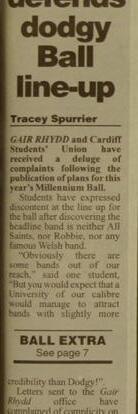
and Complaints Procedure at cardiffstudentmedia.co.uk/complaints
Opinions expressed in editorials are not reflective of Cardiff Students’ Union, who act as the publisher of Gair Rhydd in legal terms, and should not be considered official communications or the organisation’s stance. Gair Rhydd is a post office registered newspaper.















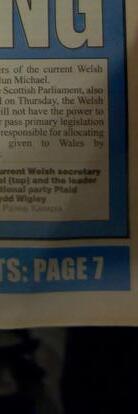
Tis week we’re travelling to the year of 1999 - a strange pre-millennial time when the smartphone was just a pipedream and ‘Friends’ was still on TV. Wales had only just devolved 18 months previously and the first election of the National Assembly dominated the front page of issue 635 of Gair Rhydd.
Te Welsh dragon flag waves proudly above the title of ‘History in the Making’ as the Assembly elections were only three days away. A wonderful little first hand look into Wales’ history such as this is one of the reasons why we do this little spot of time travelling in Gair Rhydd. It seems that the student population were expected to make a huge impact on the outcome - much like we are in Tursday’s general election. Unlike today, within the pages of 1999 Gair Rhydd only interviews with Conservative and Labour candidates are included. It seems as if there were other parties running in the Assembly elections however were hardly worth a mention, whereas the media today tends to include the 7 main parties when discussing politics. Ironically, it turns out that a Liberal Democrat won the election, as Gair Rhydd reports two issues ahead. A lesson should be learnt for the media of 1999 to never underestimate the more minor parties, as they could surprise you.
In other news, the SU was planning a ball to bring in the Millenium. Unfortunately there seemed to be some negativity surrounding the proposed line-up to be playing at said ball, as the organisers tried to reel in a big-name act but only faced rejection. Listed are some of the artists the Union approached, and it seems that they were pretty
optimistic when it came to finding people, as names include Robbie Williams, Te Foo Fighters and even Sir Tom Jones. No wonder potential ticket-buyers were disappointed with the line-up after such rejections.
Gair Rhydd printed many more letters that were sent in, with the most eye-catching of the lot entitled ‘take a chance on pee, dancing queen’: a comment from disgruntled student wishing for more from the aforementioned Millenium ball, such as a later finishing time and better Indie bands. I doubt he got his wishes in the end, but it’s nice that Gair Rhydd of 16 years ago allowed him a platform for his voice to be heard. Today this platform is far less necessary as our comments and complaints either come from contributors or in the short and sweet form of 140 character tweets.
Worryingly, the university was concerned about the return of a cult back in 1999 - the Cardiff International Church of Christ. Te article claims that vulnerable first years are being drawn into the cult with little chance of leaving. Tere was an help group advertised for concerned students to turn to for advice about cults and cultrelated matters.
In lighter news, it seems as if in 1999 Gair Rhydd held competitions for lucky students to win prizes. And not just any prize, but vegan-friendly condoms. Tis may sound like a joke but the paper assures us that one ‘Patrizia Chiesi’ had her prize waiting for her in the Gair Rhydd office as the lucky winner. We only wish such things were available as prizes for us to win today.
ADVICE
SPORT
EDITOR
EDITORS
MEDIA EDITOR
At Gair Rhydd we take seriously our responsibility to maintain the highest possible standards. Sometimes, because of deadline pressures, we may make some mistakes. If you believe we have fallen below the standards we seek to uphold, please email editor@gairrhydd.com. You can view our Ethical Policy Statement
- MM
Campus In Brief


May is in full swing; exams and deadlines are looming, and student politics were looking decidedly sunnier as Cardiff University students defied expectations to reach the 1,500 vote quorum needed to make the Welsh Language Officer vote binding. However, expectations that the Students’ Union would institute a full-time Welsh Language officer were hopes when the No campaign secured a narrow victory.
In other news about democracy the Students’ Union hosted a debate between representatives of seven of the political parties competing for your vote in Cardiff Te politicians involved were: Dafydd Trystan (Plaid Cymru), Owen Smith (Labou), Pippa Bartolotti (Green Party), Aled Roberts (Liberal Democrats), Andrew Davues (Conservatives), Sam Gould (UKIP) and Ross Saunders (TUSC).
Professors from the School of Earth and Social Sciences have used their unique ShakeSlide disaster assessment program to assist in rescue efforts following last week’s huge earthquake in Nepal, which has killed thousands of people so far. Organisations such as Te World Bank and MapAction worked with the program’s developer Dr Robert Parker to help provide relief to the stricken areas.
Te University fell eight places to 31st on the Complete University Guide 2015, but remains the highest ranked of the eight Welsh institutions listed. Cardiff Met made the biggest jump in Wales, moving up 19 places to 79th on the list, which was once again topped by Cambridge, Oxford and LSE in first, second and third respectively.
Scientists from the University’s School of Chemistry have created an insect repellent that mirrors naturallyoccurring smells known to repel insects, in the hope that it will lead to the reduced use of environmentallyharmful pesticides. Professor Rudolf Allemann, Head of the School of Chemistry said: “Trough the power of novel biochemical techniques we have been able to make insect repellent smell molecules which are structurally different but functionally similar to the original.”

NATIONAL
Te General Election is upon us. If you didn’t already know, why don’t you already know? Anyway, you know now, and voting takes place this Tursday May 7th, with polling stations set up all over Cardiff. With many indicators pointing towards another hung parliament, politicians are making their final pledges to the public in attempts to win their vote in what will be a defining election for this generation of students.
Labour leader Ed Miliband continued on his quest to dispel the notion of him being awkward and of poor leadership material by debating Russell Brand one-on-one. Having challenged David Cameron to a similar debate not so long ago, Miliband may have been underwhelmed by comedian and self-modelled manof-the-people Brand, who continued on his discourse that democracy won’ solve nothin’.
UKIP Nigel Farage claimed that the EU’s response to the recent Mediterranean migrant disaster would pose “a direct threat to our civilisation”, in a speech in Strasbourg last week. Farage warned of the threat of jihadists being migrants to arrive in Britain should a quota be set up by the EU.
Te parents of Madeleine McCann have been awarded €500,000 in libel damages from the leader of the investigation into their daughter’s disappearance. Gonçalo Amaral made claims in a book that Gerry and Kate McCann had faked Madeleine’s disappearance and hiding her body. In addition, the sale of Amaral’s book, ‘Te Truth of the Lie’, has been immediately banned.
Last Tuesday marked the fourth annual Ed Balls Day, a tradition in which mischievous Twitter users hark back to the time when Shadow Chancellor Ed Balls accidentally tweeted his own name when attempting to search for himself on the social network. Some users joked that the day had become too commercialised, before Balls himself got in on the fun, once again retweeting the infamous Tweet to the delight of thousands.


INTERNATIONAL
Te 7.8 magnitude earthquake that hit Nepal last Saturday has left a trail of death and destruction across the small central-Asian nation. Huge avalanches on Mount Everest trapped climbers tackling the world’s highest mountain, while the country’s capital Katmandu was particularly hard hit. Aid has started to arrive in Nepal, but there are frustrations at how slow it is taking to arrive in some parts of the country.
Eight of the so-called ‘Bali Nine’ were executed by firing squad in Indonesia last week despite last-minute calls from foreign leaders to halt the execution. Te eight people killed, including four Nigerians, two Australians, a Brazilians and an Indonesian, had been convicted with drug trafficking in 2006. Australia recalled its ambassadors in the aftermath, claiming that the group had been “fully rehabilitated”.
A United Nations aid worker was suspended after allegedly disclosing information that implicated French peacekeeping troops in being involved in the sexual abuse of a child in the Central African Republic.
Anders Kompass, one of the organisations senior aid workers, reportedly passed documents onto French authorities after the UN had failed to take action.
South Korean intelligence revealed that North Korean leader Kim Jong-un had so far this year ordered the execution of 15 people, including several senior officials. Sources understand that those killed were done so by firing squads under charges of spying, including four members of an orchestra who are believed to have leaked family secrets.
Disney and Marvel’s Avengers: Age of Ultron became the biggest opening box office film of the year so far as it opened in cinema’s across the world.
Te film, which grossed over $200million over its first weekend, is a follow-up to 2012’s Avengers film, and features Robert Downey Jr, Chris Hemsworth, Scarlett Johansson and Mark Ruffalo among its allstar cast
The 7.8 magnitude earthquake that hit Nepal last Saturday has left a trail of death and destruction across the small central Asian nation
3 EDITORIAL
Joseph Atkinson
Pictured: Te city of Kathmandu (Photographer: Royon, Wikimedia commons)
“ ”
tweet us @gairrhyddnews
email us news@gairrhydd.com or visit us online at gairrhydd.com/news
Students vote NO to Welsh language officer
Katie Evans
The referendum to instate a Welsh language sabbatical officer has failed, despite proving the most successful referendum in the Students’ Union’s history.
The landmark vote, held between Monday, 27th April and Friday, 1st May, drew in a record-breaking 2,367 votes; 1138 in favour, 1,229 against and 19 abstentions- more than any other votes cast in a referendum in the Union’s recent history. It was an extremely close margin, with 48 per cent ‘for’ the motion, and 52 per cent opposing it.
voting quorum had been met.
Questions have been raised over whether the large voter turn-out is a reflection of student-wide engagement with the issue of the Welsh language, or whether sabbatical officers’ scaremongering and threats to society and AU committees budgets were the cause for the surge in votes early on in the week.
Meanwhile part-time Welsh Language Campaign Officer, Steffan Bryn, led the ‘Yes’ campaign. Back in December, a motion presented by Steffan Bryn to Student Senate to hold a referendum fell by a single vote. Steffan Bryn then launched a successful petition to win the right to hold the student-wide vote.
“ ”
VP Education and leader of the ‘No’ campaign, Rhys Jenkins, expressed his joy at the result: ‘Obviously we are pleased with the outcome of the referendum. We are committed to improving the experience for Welsh speaking students and celebrating Welsh culture.
Willis later admitted that by emailing students, he sought to influence voters to select ‘no’
‘We hope the Welsh Language officer and the campaign in general will work with us going forward to make real change happen.’
Following the failure of the referendum, Steffan Bryn wrote in a statement to Gair Rhydd: ‘Today is a sad day for Cardiff students, but we fought the good fight, and ran a fun, positive campaign. We’d like to thank the grassroots campaigners and the people from all backgrounds and nationalities who supported us.’
Back in March, Jenkins wrote an article for the Gair Rhydd in which he criticised the ‘time and money’ that would be invested in a referendum. He wrote: ‘Many previous referendums have failed to reach this binding minimum and I imagine this will be the case once more.’
Any referendum held by the Students’ Union requires a minimum 1,500 votes to meet quorum and there were widespread fears the issue would fail to draw enough voters to make any outcome binding, as has frequently happened in the past. But by Wednesday afternoon the
Pictured: Te ‘Yes’ campaign out in force, canvassing student halls
The result is a blow to the University’s Welsh-speaking community who spent the last week tirelessly campaigning across campus. Carrying balloons and wearing ‘Ie/Yes’ t-shirts, their campaign appeared strong as they canvassed halls and School buildings, engaging with the student body and encouraging people to vote.
The ‘Yes’ campaign set up social media accounts on Facebook and Twitter, sharing posts and videos of national and international support for the cause. The ‘Ie Caerdydd/ Yes Cardiff’ Facebook page quickly gathered supporters, gaining 430+ ‘likes’, unlike the ‘Vote No’ page, which received only 47 - raising more questions over how the ‘No’ campaign were able to secure success.
Unlike the ‘Yes’ camp, the ‘No’ campaign lacked a sense of solidarity, at least publicly, with a small number of individual voices facing a united collective of Welsh speakers and learners with a highly organized and highly passionate campaign. The result has, understandably, dealt a real blow to those who worked tirelessly all week in the hope of securing a win for the ref -

The defeat of the referendum has come as a surprise, especially considering the national and international support shown for the cause. Bangor and Aberystwyth universities, both of which have a full-time Welsh language officer, leant support to the ‘Yes’ campaign, highlighting the benefits the role has brought to their institutions.
In a message to the ‘Yes’ campaign, Rhys Taylor, President of Bangor Students’ Union, wrote: ‘It’s incredibly important that Cardiff - and others - are able to create a political campaign that demands a better education and society, not only within our education system but across Wales.’
President of Aberystwyth’s Welsh Students’ Union, Miriam Williams, also offered her support by sharing a video urging Cardiff students to vote and described the creation of a full-time Welsh language officer as ‘win-win’ for everyone here at Cardiff University.
Messages of solidarity were also received from further afield, with

video messages shared by supporters of the referendum as far afield as Catalonia and the Basque country, where, similar to Wales, the subject of a home minority language remains an issue of cultural and political debate.
Welsh media outlets also expressed interest in the Union’s politics. On Monday, 27th April - the first day of voting - President of CSU, Elliott Howells, and parttime Welsh Language Officer, Steffan Bryn, spoke to Radio Cymru. Meanwhile other Welsh-language news outlets picked up the story, including Newyddion 9 (News 9) and Golwg360 (360view).
The referendum has sparked a dialogue on the issue of the Welsh language and the provisions, or lack thereof, for Welsh speakers throughout the Union and has also unearthed among the student population a surprising amount of support for cause.
‘After this energised campaign we are more convinced than ever of the need for a full-time officer for the language,’ said Steffan Bryn.
Pictured: ‘Yes’ campaigners confronting sabbatical officers following the failure of the referendum (Photographer: Anna Lewis)
“Unlike the ‘Yes’ camp, the ‘No’ campaign lacked any sense of solidarity
”Past SU referendums have been largely unsuccessful
2013
Referndum on whether or not the SU should remain a member of the NUS: 1121 voted YES, 338 voted NO approx. 5% of students voted
2013
Referendum on whether or not the SU should fly the Union Jack and the Welsh flag failed - voting stats unknown
2012
Referendum on whether or not the SU should march in a NUS-led demonstration in London: 86 YES votes, 53 NO votes approx. 0.3% students voted
NEWS
erendum.
EXCLUSIVE:
Michael O’ConnellDavidson
Anna Lewis
Welsh Referendum ‘No’ campaign sparks outrage:
Gair Rhydd investigation reveals significant evidence of scare tactics and exaggeration
The ‘No’ Campaign in the Welsh Full-Time Officer referendum relied on significant exaggeration and “scaremongering” statements, a Gair Rhydd investigation can reveal.
During the week-long referendum, officers including the SU President, VP Education and VP Societies sought to push forward the ‘No’ campaign, claiming that creating an eighth sabbatical position would cut sports and societies budgets by up to £46,000. In addition, President Elliot Howells said that a new officer would cost “in excess of £30,000” when wages, training, and benefits such as the company pension were factored in.
However, Gair Rhydd can confirm that this figure was significantly inflated, after the SU president told the newspaper “confidently” that “on average, an Officer doesn’t cost the organisation any more than £26k a year.”
Neither he, nor any members of the No campaign, could provide a specific breakdown of what these costs would be, despite consistently warning of the threat to the union budget.
Howells said that “the information certainly does exist, but it exists in various budget pots and to bring all of that together would just take some work.”
Gair Rhydd can confirm that the 26k figure includes benefits not afforded to student staff, such as a leased iPhone and laptop, as well as company pension contributions. Other costs, such as “branded clothing for events”, were included in various estimates provided to Gair Rhydd. We can also confirm that sabbatical officers received a pay rise this year, as did all career staff.
However, while Sabbatical officers receive the same benefits as career staff, they are not counted as such for the purposes of the Students’ Union Staff-Student Protocol, which would prohibit them from “seek[ing] to influence the democratic processes of the Union”.
Barney Willis sent an email to society committee members on the 24th, before voting had opened, in which he included a “brief note on how [the referendum] could impact societies,” urging them to vote. He threatened that it would lead to cuts to the £20,500 societies budget, but did not specify the extent to which the budget would realistically be reduced. Te email received a negative response, with various Yes campaign members and undecided voters describing it as a “threat”.
Gair Rhydd asked the VP Societies what his intention was, and put forward allegations that the message was intended to be a threat designed to influence voters to cast a ballot for No. Barney responded, saying that he was expressing his view “to assist others in making their decision and influence
time officers, as it was not clear to him whether the allegations ‘carried any weight’.
the result of the referendum for the reasons [...] stated.”
Rhys sent out a number of emails. One to student reps set out the No Campaign and urged them to vote yes. Another, described by recipients and observers as “scaremongering,” was sent to sports clubs, and began with “Your club’s budget could be in danger...”.
It went on to suggest that the officer position would be entirely funded by cuts from the Athletic Union: “£26k of the AU budget or your club’s equipment cost is a high price to pay for a political statement, regardless of whether we are in the capital city or not”. Tese claims do not appear to be substantiated, and, when combined with Barney’s unspecified cuts to the Guild of Societies budget, add up to projected cuts exceeding £46,500.
Whilst sabbatical officers sent ‘mass emails’ to students listing the potential cuts, leader of the ‘Yes’ campaign Steffan Bryn was refused the same platform, denying the Welsh language officer the ability to respond to these claims or set out the “Yes” campaign case for a Welsh Language Officer.
Documents seen by Gair Rhydd confirm that Steffan Bryn was not allowed the opportunity to use the same platform as full-time officers on the grounds that officers simply “communicated using their regular channels”. But inconsistencies remain: VP Education Rhys Jenkins set out the No Campaign case in the AU Newsletter, something that he does not use regularly. Elliot Howells claimed that he “would not expect” Steffan Bryn to allow the ‘No’ campaign to send out mass mail using lists that only he had access to, such as Y Gym Gym’s mailing list. However, Steffan is not on the Y Gym Gym committee, and so cannot send mail using this list without someone else’s permission.
While the ‘Yes’ campaign relied on face-to-face canvassing, there appears to have been no physical campaign undertaken by the ‘No’ camp at all, leading some to question whether or not the No campaign ever really existed, or whether or not it was simply a Students’ Union front. Indeed, the ‘No’ campaign took a bizarre turn when it was revealed that campaign leader Rhys Jenkins had taken annual leave, and was not present for a large part of the referendum.
Campaigners who requested referendum regulations did not receive a response from the Students’ Union. ‘Yes’ campaigner Daniel Roberts stated he waited three days for relevant documentation, but did not receive anything. Without this, Roberts was prevented from launching a complaint regarding the behaviour of the full-
Gair Rhydd has reviewed the Students’ Union constitution (which is comprised of various documents) and can find little governing the way referenda should be conducted. While Students’ Unions typically apply the same rules as elections, this is not true for Cardiff University Students’ Union. As such, with regards to our above findings, no rules have been broken. A ‘Yes’ campaign member, speaking to Gair Rhydd, accused the Students’ Union of “making it up as they went”.
We can confirm that, as per Students’ Union policy, somebody working in Y Plas would be prohibited from discussing an election while on duty. Tis publication is also expected to remain impartial during elections. However, sabbatical officers are not denied the platform and can intervene as they see fit while undertaking their salaried work. Steve Wilford, director of Membership Services, told Gair Rhydd that with regards to previous elections, they have simply “chosen to abstain.”
Yes leader Steffan Bryn later accused the ‘No’ campaign of using “scaremongering tactics from the heart of the Union”, and accused the Union of failing to meets its aims of “representing and supporting students”. Many have joined him in saying this, particularly on social media. Harry Tompson, a Cardiff student, said that he voted yes partly because that the campaign had “more convincing arguments,” but also because he “dislik[ed] the dodgy was the SU ‘establishment’ has fought for No.”
When asked to comment on the allegations and criticism the No campaign had received, Rhys responded that they had done nothing wrong. He explained that he and his colleagues “undergo several months of training and as a result become knowledgable in the Union, how it’s run, and how to effectively achieve change.”
“We have done what sabbs do all over the country. It was entirely appropriate we did and potentially have been neglectful had we not.”
Elliot Howells, who leads the officer team as part of his role as SU President, supported this defense
But these explanations are unlikely to satisfy even No voters. Students have labelled the actions of the sabbati-
cal officers a ‘misuse of power’, regardless of any policy breaches. Journalism student Lewis Hopkins, a No voter, was dismayed: “[they] should have to stay neutral through official channels.”
Morgan Owen, a ‘Yes’ campaigner, expressed his disappointment in the Students’ Union: “Tey preach democracy and have tried to shoot this grassroots movement down from step one.”
“It is absolutely fucked up. We on the yes side are genuinely worried that the Union’s undemocratic, autocratic and outrageous intervention could skew the result”, he said, prior to print. Te result, now revealed, was a ‘No’.
Critiquing the ‘No’ campaign, Owen went on to describe the promises made to improve language facilities as “insulting”.
“I have noticed in my time at the University that the Union have been extremely dismissive of my first language, and I simply cannot trust them when they say they will find other ways to improve provision.”
Law student Dewi Jones also condemned the ‘No’ campaign, claiming to be ‘ashamed’ of the behaviour of the ‘No campaign’ and the elected Union members.
“Rather than engaging in a positive debate as to why they disagreed with a Full time Welsh Language officer, they almost immediately resorted to undermining the Yes campaign in a rude and condescending manner.”
Steffan Bryn, speaking to Gair Rhydd, said: “Cardiff University Students’ Union needs a democratic revolution.”
Tis inability to provide the costs of full-time officers was later condemned by the leader of the ‘Yes’ campaign. He expressed concerns about how opaque the Union’s finances were: “How much do senior Union staff earn? Why aren’t we allowed to know? Tese questions that should concern all students.”
Te result - where ‘No’ secured victory by a thin margin - was received poorly by the Welsh language community, in part because of the way ‘No’ had undertaken their campaign. Tose in attendance when the results were announced claimed that ‘No’ was just an “anti-Welsh” campaign. Te ‘No’ campaign was also accused of ‘feeding prejudice’ against the Welsh language, and encouraging a superficial, almost racist understanding of the Welsh language and culture.
“Steffan Bryn was not allowed the opportunity to use the same platform as full-time officers
Pictured: Below: VP Education, Rhys Jenkins, is confronted by ‘Yes’ campaigners
(Photographer: Anna Lewis)
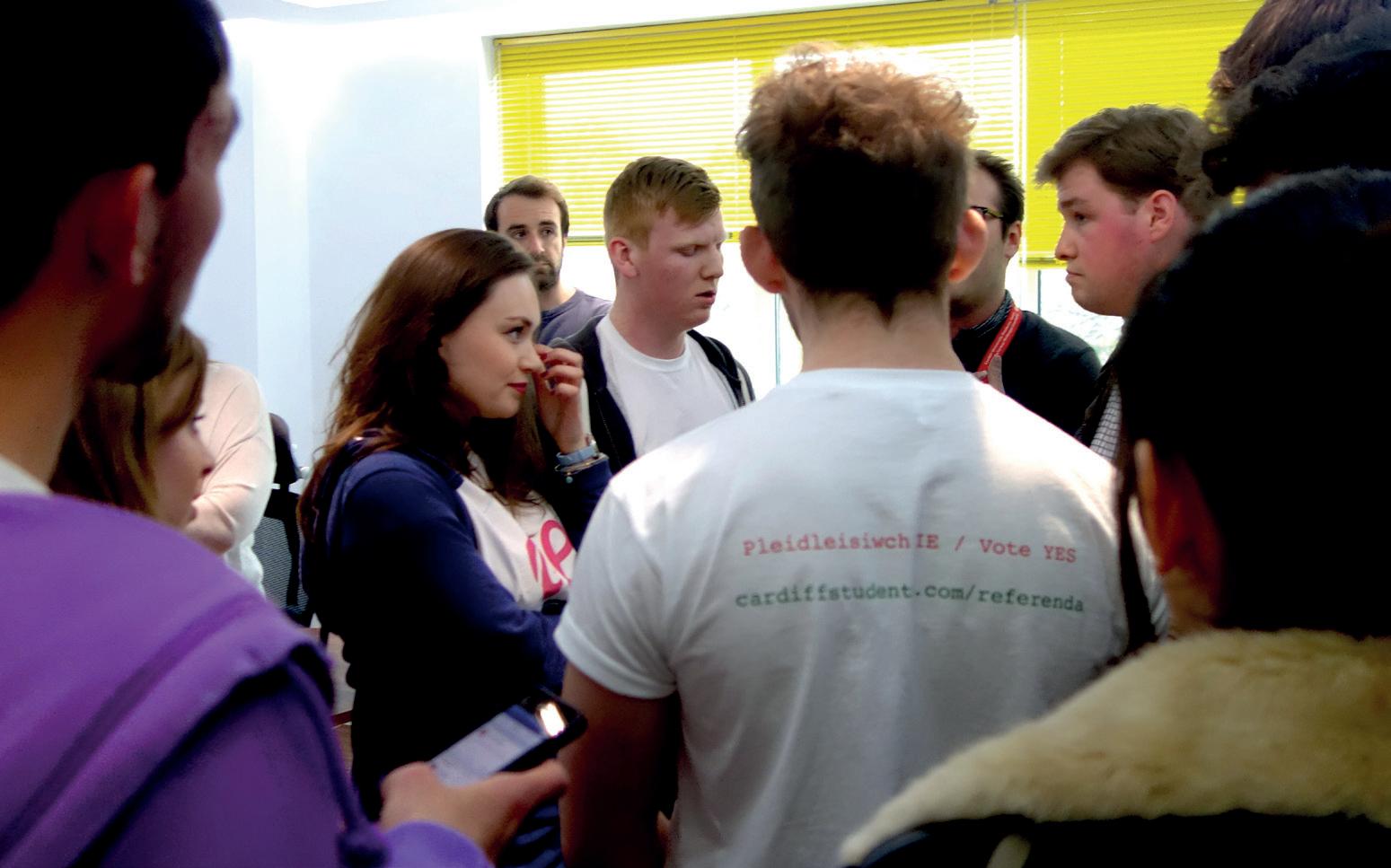
5 NEWS
“ ”
Your club’s budget could be in danger Email sent by VP Education Rhys Jenkins
”
Two of four motions scrapped at Student Senate “
Anna Lewis
The last Student Senate meeting of the academic year took place on Tuesday, April 28th, with senators removing two of the four motions submitted.
Te meeting, which was attended by nineteen of the elected senators, was chaired by Joshua Green. Prior to the discussion of the motions, senators debated a suggestion to create storage space for international students during university holidays. Te motion was met with positive responses, with Students’ Union President Elliot Howells suggesting that the Union look into ‘striking a deal’ with local storage providers in order to secure a reduced price for students.
Following queries regarding transport and access to such facilities from VP Heath Park Claire Blakeway, it was decided that the matter should be re-considered at a later date.
“
With the Union proposing to open a clothes shop in the next academic year, the economic consequences of renewing the policy were brought into question
Te first motion on the agenda, submitted by Kate Delaney, proposed that the group renew existing policies ensuring the use of Fairtrade clothing within the Union. Introduced by the Senate in 2012, the original motion mandated the Union to ensure that 100% of clothes sold are certified Fairtrade or ethically sourced.
However, the validity of the policy was questioned by Postgraduate Students’ Officer Ollie Wannell, who expressed doubt over whether any of the officer team’s t-shirts are in fact ethically sourced.
It was also questioned whether clothes linked to Drink the Bar Dry and Varsity are currently Fairtrade.
Creating further doubts as to the validity of the motion, Howells expressed concerns over the feasibility of sport teams’ commitment to Fairtrade clothing, with team kits currently outsourced to suppliers ‘Rhino’.
With the Union proposing to open a clothes shop in the next academic year, the economic benefits of renewing the policy were also brought into question, as the SU President stated: ‘We now have more clothes than ever in the Union so renewing the policy
will see increased costs’.
‘ Tis will affect students, as any higher costs of supplying Fairtrade clothing will increase the price of clothes’, he said.
As a result of such complications, it was decided that the motion should be removed from the agenda in order to take more time to assess the details involved.
Te second motion of the evening, proposed by Darian Okakpu, proposed that the senate campaign to raise awareness of the importance of protecting academic freedom. In the motion, Okakpu suggested that senate create a campaign to support the work of the Council of At-Risk Academics (CARA), and its provision of refuge for academics in areas including Iraq and Syria.
It was also proposed that events or conference series be helld to host guest speakers and that CARA be added to the list of charities supported by the SU.
However, the limitations of the motion were soon established, as it was pointed out by Howells that before being supported by the SU, CARA must first be scrutinised by the current fund-raising committee RAG.
In addition, it was pointed out that unless otherwise stated, the responsibilities of organising events to support CARA would automatically fall to elected sabbatical officers. Instead it was suggested that such duties be delegated to relevant societies.
As a result, the Senate concluded that the motion should be removed from the agenda, with the intention of resubmitting the proposal as a new society rather than a Union policy. It was explained that any attempts to launch campaigns and events would secure greater support under a society.
Underlining the importance of increasing student access to Cardiff Council, the third motion of the night proposed the creation of dropin surgeries for students to meet and talk to Cardiff councillors.
Submitted by Jake Smith, the motion emphasised the dense student
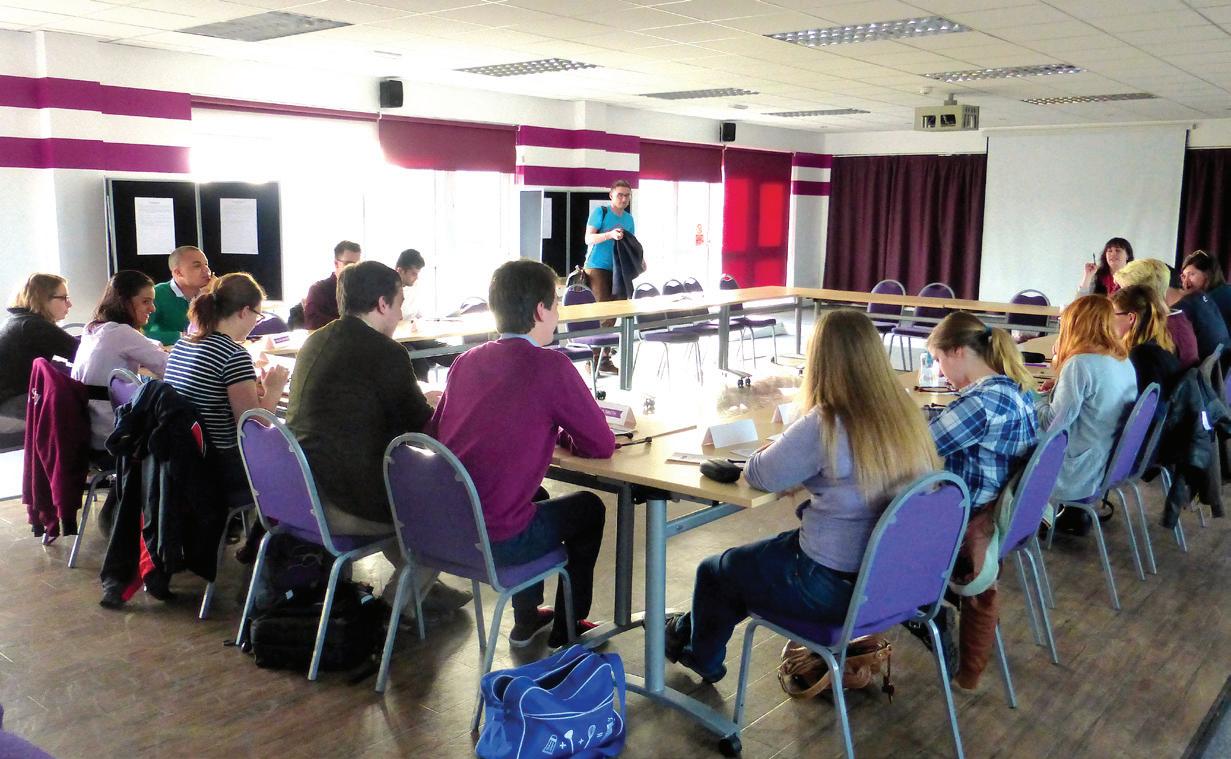
population of Cathays, which represents 69.9% of the area’s population. Accordingly, it was suggested that the drop-in sessions would effectively allow the local community to better raise any concerns with councillors during each semester.
According to Smith, this would allow a platform to raise concerns about council matters including the behaviour of landlords and the quality of public facilities.
Te motion was met with unanimous consent, with Claire Blakeway stressing the importance of providing the same access to Heath students.
It was concluded that sessions should be held in Student Union space on the medical campus.
Having received full support, the motion was passed with all voting in favour.
Te last motion to be discussed proposed that the senate lobby the University to introduce healthier vending machines in both the ASSL and Cochrane libraries.
Despite the uncontroversial nature of the motion, debate was sparked by Wannell suggesting that such matters be discussed with the VP Education directly.
‘Senate exists for discussing policy instead,’ he said.
However, Smith replied that by putting such motions on the agenda, it makes the matter a priority.
‘If it affects students, then it is a policy’, he stated.
Te motion was passed without any opposing or voting to abstain.
Other subjects discussed in the meeting include the approval of new Union by-laws. Changes included altering procedure at meetings (including the AGM) with both the proposer of a motion and opposition allowed to make a summation statement. Under current rules, only the proposer of the motion is permitted to put forward a concluding statement.
Whilst revising the by-laws, Wannell also proposed to revert the original time allocated to speakers to promote or oppose a motion back to
four minutes, after it was suggested the time be halved in the interests of efficiency.
Te meeting concluded with a discussion focusing on the importance of engaging students in politics. It was noted that with Welsh Assembly Government elections next year, the Union should strive to explain to students the responsibilities held by the Assembly and encourage voter turnout.
Whilst it was noted that the number of voters in the student elections held last semester saw a marked improvement in contrast to previous years, it was also suggested that the Union seek to increase turnout next year, with comparisons made to other universities with higher voting records.
Following in the wake of the NUS National Conference last week, Smith concluded that more effort should be made to involve Cardiff students in national events.
SUMMARY OF MOTIONS
Appointment of trustees Approved
Revised Byelaws Approved
Renewal of Fair Trade Policy Removed from agenda
Protecting Academic Freedom Removed from agenda
Making Cardiff Council more accesible to students Approved
Healthy eating for better study in ASSL Approved

The Senate concluded that the [academic freedom] motion be removed from the agenda, with the intention of resubmitting the proposal as a new society
6 NEWS
”
Pictured:
Left and right: Senators at the meeting held on Tuesday (Photographer:
Alexander Norton
Cardiff University drops out of Britain’s top thirty
Cardiff University has defended its performance in light of an eight place fall in the 2016 Complete University Rankings.
Te institution fell from 23rd nationally in the last year’s edition to 31st overall in 2016, in spite of having targeted a permanent place in the top twenty in a plan entitled ‘Te Way Forward’.
In the public document (published in 2012 and still available online) the
University proclaims that: “In five years’ time we will consistently be among the top 100 universities in the world and the top 20 in the UK.”
Despite the discrepancy between the university’s aims and its current status, the institution remains confident in the achievability of its long term aims.
“Te Way Forward strategy is our five year plan which runs until 2017,” a Cardiff University spokesperson told Gair Rhydd.
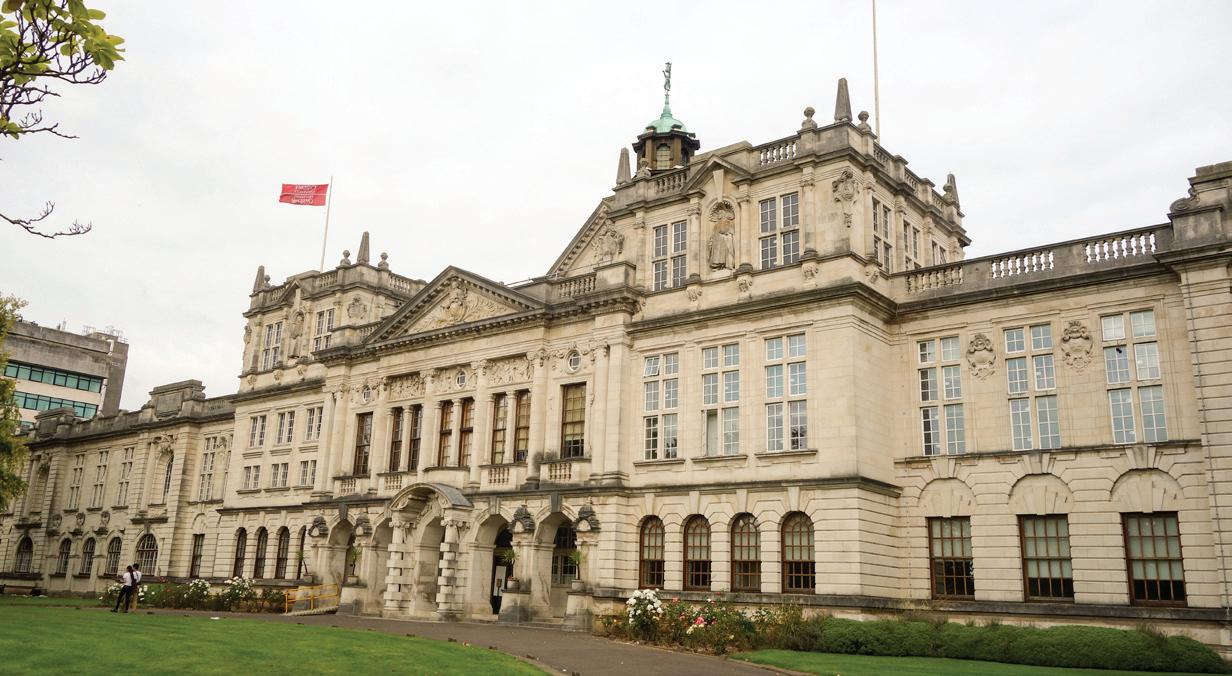
CGeorgia Hamer
It is hoped that the expanded retail provision will enable the Union to attract more student-friendly businesses to the campus
Yet whilst the University still has two years remaining to fulfil its stated ambitions, the latest edition of the Complete University Rankings appears to show the institution heading in the wrong direction.
Te guide, which claims to be “independent and trusted”, assesses institutions on nine different criteria including entry standards, graduate prospects and student satisfaction.
A Cardiff University spokesman claims that the fall is down to underperformance in two of the aforementioned criteria.
“Te ranking reflects the fact that we’ve performed less well with Degree Completions and Student/Staff Ratios, but we have seen improvements with Research Quality and Graduate Prospects.” they said.
Te spokesperson further defended their record in other areas.
“Whilst our ranking has dropped overall, we have seen rises in 25 subject areas.”
Medicine has improved to the extent that it is now ranked third in the United Kingdom - a rise that is further de-
tailed in this week’s ‘Park Life’ section. Suggestions of course-by-course improvement appear to be supported by a separate assessment by QS University Rankings, which sees twenty-five of the thirty-three subjects taught at Cardiff enter the “world elite”.
In particular, the fields of Architecture, Psychology and Geography were singled out for praise – each achieving a rank inside the world’s top fifty courses in their field.
Despite this, it was the same assessors that ranked Cardiff University 123rd in the world in 2014; the seventh consecutive year in which in the institution has missed out on a place in the top one hundred.
Te disappointing nature of the overall rankings in relation to Cardiff ’s stated aims did not prevent a spokesperson reiterating the University’s position at the heart of higher education in Wales.
“Cardiff University occupies a unique place in Wales and we are committed to combining our strengths and talents to drive forward the knowledge economy in Wales and beyond.”
Cardiff student recognised for tackling homophobia
ardiff University student
Christian Webb has been named ‘Young Campaigner of the Year’ by LGBT+ rights group Stonewall.
Webb, who studies History, received the award from television personality Gok Wan at a ceremony held at the headquarters of Lloyds Banking Group in London.
Te accolade was conferred in recognition of the student’s efforts at his former secondary school Ysgol Bryn Tawe in Swansea, where he has gone to extensive lengths to tackle homophobia.
“It was a pretty amazing experience,” Webb said of the awards cer-
emony.
He first began volunteering for Stonewall, which has strong record of exposing and tackling issues of inequality at educational institutions, in June 2014.
“ Te reason I got involved in the first place was that no child in Wales, regardless of their sexuality or identity, should grow up feeling unloved or unsupported,” Webb said.
“In secondary schools nine in ten teachers still hear or know of homophobic language being used, according to Stonewall Cymru’s research.”
“ Tat’s why the work of Stonewall is still important,” he claimed.
Te twenty year-old went on to de-
tail his efforts at his former school, a Welsh-speaking comprehensive with around nine hundred pupils.
“I’ve been working to create a Sixth Form Equality Panel, made of up of thirty members of the Sixth Form who work throughout the school to tackle all forms of homophobia and homophobic language,” he said.
“As part of the project we also held a coffee morning which raised £185 for Stonewall through selling everything from cakes to t-shirts.”
He’s hopeful that in the future the project will continue to thrive independent of his input, and that the idea will spread to other schools in the area.
“What I really want to do now is go back to the school and develop the skills of the equality panel so they can continue with the project.”
“Hopefully it will thrive organically and continue to work and inspire other schools to deliver the same kind of project with the same level of success,” he concluded.
In 2014, Cardiff University was one of only six universities to achieve full marks in Stonewall UK’s ‘Gay by Degree’ survey.
Earlier this year, Dr Iñaki Garcia Blanco of the School of Journalism, Media and Cultural Studies was appointed a Stonewall Cymru ambassador.
£2.5m redevelopment of Union first and ground floor plans revealed
The University has granted funding for a £2.525 million re-development of the ground floor and first floor of the Students’ Union, set to take place between June 2015 and September 2016.
Te plan follows redevelopment projects undertaken on the second, third and fourth floors of the Students’ Union over the last three years and aims to provide students with more multi-purpose spaces for student events and activities.
Te project also aims to establish a larger rear entrance to the building and increase the number of retail spaces that open on to Senghennydd Road.
Te refurbishment is part of an ongoing commitment from the University to redevelop all front-facing areas and ties in with the University’s campus-wide Estates Masterplan project.
Work on the redevelopment will begin at the same time as a development of the Heath Park site, due to be completed over the summer.
Elliot Howells, Students’ Union President, said, “I am thrilled that the University have approved this significant investment in our building on Park Place. Te redevelopment of the ground and first floors will complete the overhaul of the main public areas of our forty year old building.”
“Te commitment from the University follows a series of significant successful redevelopments which have been extremely well received by the student body and align with both the University’s and the Students’ Union’s strategic vision.”
Howells stressed that the Students’ Union project team will schedule building work to ensure that the project has minimal impact on building
users and student services over the next 15 months.
It is hoped that the expanded retail provision will enable the Union to attract more student-friendly businesses to the campus. To ensure that
these spaces are the best possible fit for what students want, the Union is welcoming ideas over the next few months through cardiffstudents.com, via email and on social media via the hashtag #RedevelopCSU.

“
The institution fell from 23rd nationally in the 2015 edition to 31st overall this year, in spite of having targeted a permanent place in the top twenty
”“
” No child in Wales, regardless
of sexuality or identity, should grow up feeling unloved Christian Webb
7 NEWS
Pictured:
fallen eight
Alexander Norton
“
”
Pictured: Designs for the ground floor Union
Joanne Gibson
Melanie Wortham
ADVICE
Welcome to our Advice section, where we bring you tips for surviving Cardiff University life Email us: advice@gairrhydd.com
Trying to create the perfect CV?
Following our advice on covering letters, the Careers guidance team offer their services to improve your CV
There are many myths surrounding CVs and cover letters. With the end of university looming for many third year students, there are a lot of applications for each available job - so this is the perfect time to tweek your CV to ensure that you stand out.
Joanne Gibson and Melanie Wortham from the University’s Careers Guidance Team in the Student Support Service give their take on what works well and what to avoid when playing the recruitment game. From now until late summer, much of our time is spent reviewing CVs, cover letters, or generally just getting students started with the process of putting their thoughts down on paper. Here in Careers, it’s something that we are very well equipped to do.
A Personal Profile is optional, and should be a taster to what the rest of the CV sits upon
We’ve both worked in Graduate Recruitment and have seen more CVs in our working lifetime than you might think possible. Other colleagues have worked in HR or other relevant professional settings. All of us are qualified in Careers Guidance and are able to give professional advice on what will be the best possible framework and style for every individual we meet. We challenge a surprisingly large number of myths along the way.
One style definitely doesn’t fit all! Just because a template and style has worked particularly well for your housemate doesn’t necessarily mean it’s going to work for you. Different styles are preferred across different industries.
Te biggest debate for undergraduates can be Chronological vs Skills based. ‘Do I highlight my education and work experience first or do I make my relevant skills the focal point?’ Before you throw yourself in to the process, find out what the sector is generally looking for. Remember that you will hear loads of conflicting advice on content and format from friends, family and recruitment agencies.
you’ll need to keep to keep the document to two pages maximum and this may well mean making some difficult choices over what to omit. Mature students can find this a particular challenge, given their often lengthier work histories.
Go back to what you are trying to achieve and with whom. Your CV needs to reflect your experience in the context of the employer and their recruitment wish list. Review it for its relevance, style and content every time you send it out for every job and employer you apply to. What will resonate with them? What has currency in their world? You may need to cut out the superfluous. Be ruthless!
Don’t make the employer work hard. Make it easy for them to find their way around your story. A CV is not an academic essay; you are writing to inform and engage interest.
Tink carefully about every word that you use and beware of using specialist terminology which may be irrelevant or unintelligible to an employer.
Structure is important too, so think about how many sub-sections you are going to include. Generally speaking, a recruiter will be anticipating sections on education, work experience (sometimes split into relevant and other), skills, interests and references.
Sometimes candidates add in a Personal Profile. More of that later…
Aside from your capability and ex-
perience, you need to convey interest and enthusiasm. At this stage in your career, it is likely that it is your potential that a recruiter will be keen to discover. Te tone of your writing is important here and you need to market yourself by selling your achievements without arrogance. It’s often a difficult line.
You don’t want to write a paragraph about your recent work experience and make it sound as if you were the vice president of a multinational
financial organisation. From experience, there’s nothing more dispiriting for a recruiter than to get excited about a candidate on paper and then to find that the reality is nothing like the hype! Tink about your tone.
Te ‘all-essential’ Personal Profile. Tis is almost always optional. Sometimes referred to as Career Objective, Personal Statement or similar, the best of these are short and become the taster that the rest of the CV simply sits upon.


What do you think? Have your say: advice@ gairrhydd.com
But I need to stand out! You will – by virtue of your (hopefully) strong academic and work experience profile and the professional and careful way in which you meet the needs of the employer. You don’t need gimmicks. Aside from CVs in the creative industries such as architecture, graphic design etc, fancy fonts, photographs and other artwork are generally unnecessary. Tey may lead the recruiter to scratch their head and ponder over what you are covering up and why you need to embellish your achievements in this way. A carefully constructed CV will speak for itself and shouldn’t need visual tricks.
A CV is indeed the story of your life, but in truth, employers have short attention spans. In most cases,
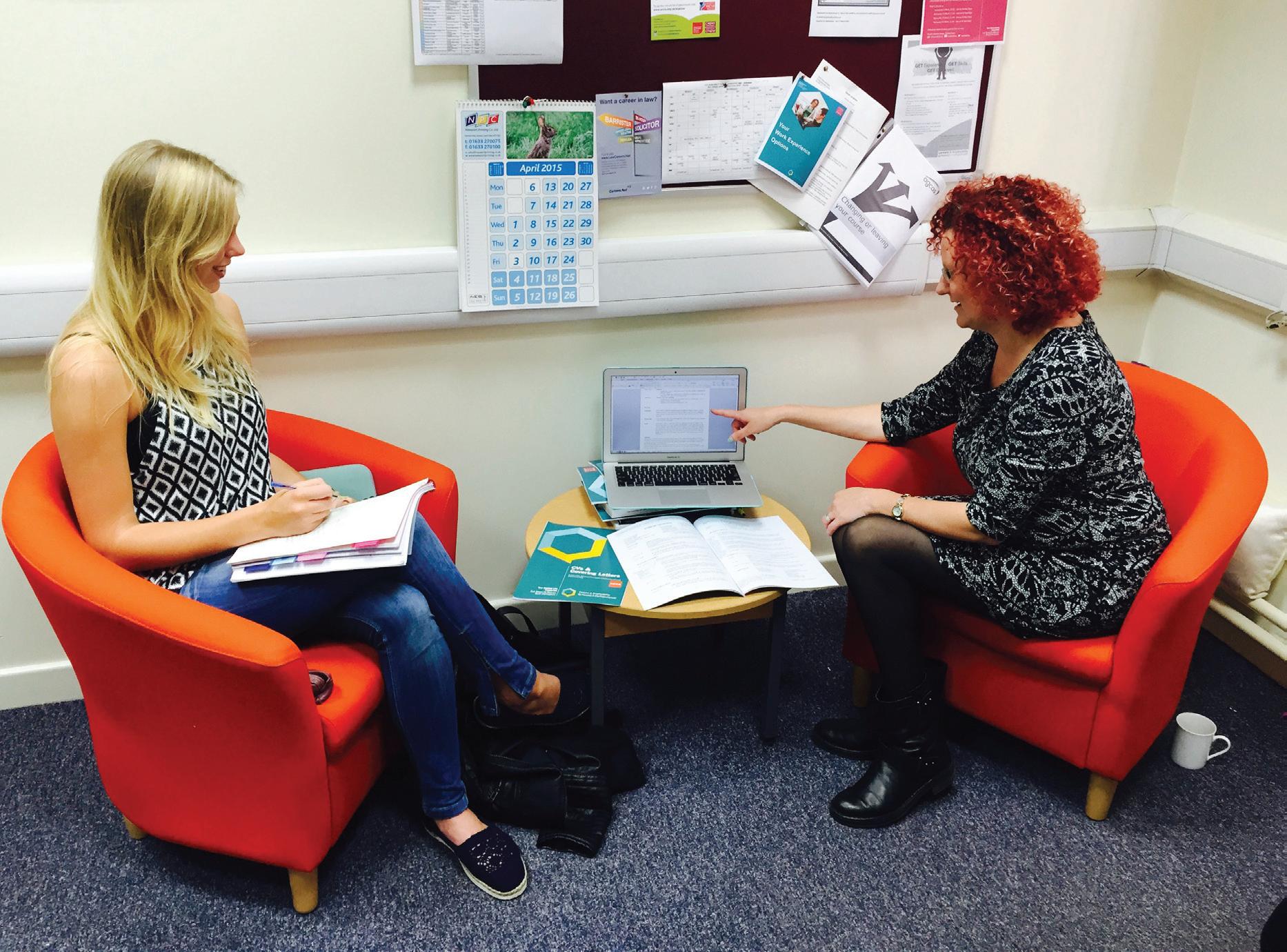 Pictured: A student getting advice on her CV from a guidance team member
Pictured: A Target Jobs fair stand
Pictured: A student getting advice on her CV from a guidance team member
Pictured: A Target Jobs fair stand
“ ”

Continued from the previous page
Don’t be tempted to cut and paste large chunks of your cover letter; you simply don’t have the room. Te Personal Profile sits in a place of considerable prominence in your document, so always consider if this is the best use of eye-catching, prime space and use words which will have resonance and value to the reader.
Confused by cover letters? Usually, your CV will be accompanied by a cover letter. As Kirsty Fardell mentioned in her article in April, a good cover letter ‘could be the difference between you and all the other candidates.’ Put simply, this is your statement of motivation and enthusiasm in the format of a business letter.
Again, it needs to be concise - a maximum of one side of A4. Many students worry about how to fill the page but it’s really easy. You are writing to market yourself and to persuade the employer to take a closer look in three main ideas, or paragraphs.
Start with an introduction, move on to a paragraph where you discuss the sector/the role and your thoughts on why you are suitable and then move on to a paragraph where you discuss the employer and why you are particularly keen to work for them.
Many do this badly and make the paragraph sound like the results of a basic internet search. Make more of this opportunity by making the link with what the employer does or has achieved and state why this is important, or of interest, to you. Don’t forget to sign off positively and correctly!
Always a work in progress. You’re going to spend quite a while constructing a winning document. However, as life changes, your career progresses, so your CV needs to develop and accommodate change, encompassing new skills and achievements.
CVs require regular review. Getting the basics right now will stand you in good stead for the whole of your professional life.
All of the above (and more) is available within our CV & Covering Letters booklet, available to pick up at our offices on the top floor of the Student Support Centre, 50 Park Place, or to download at http://tinyurl.com/ m95ao8w
Having drafted your own version, why not book a meeting with a member of the guidance team who will then review how well the document works as a recruitment tool. It’s this bespoke nature of the advice that adds the value. Whilst we will never re-write it for you, we will make suggestions for improvement and work in partnership with you.
Check the provision for your subject and find out just how easily you can make an appointment via the Intranet at http://tinyurl.com/lgbdzm9
So, whether you’ve been using your old school CV for a good many years, you’ve just never got around to thinking about it until now or you have a draft but would just like a second opinion, come along for a CV review. It’s free and all years are welcome. Importantly, whereas we are able to offer you some support after graduation, it is a reduced version of what’s available to current students, so it makes good sense for finalists to take advantage whilst you’re still here.
Tere is no such thing as ‘ Te Perfect CV’ but there is a perfect CV for you. Why not let Careers & Employability help you to discover it!
If you need some quick advice on your CV or an application form, have some brief enquiries or need emergency advice then you can book a 15 minute appointment with the Careers
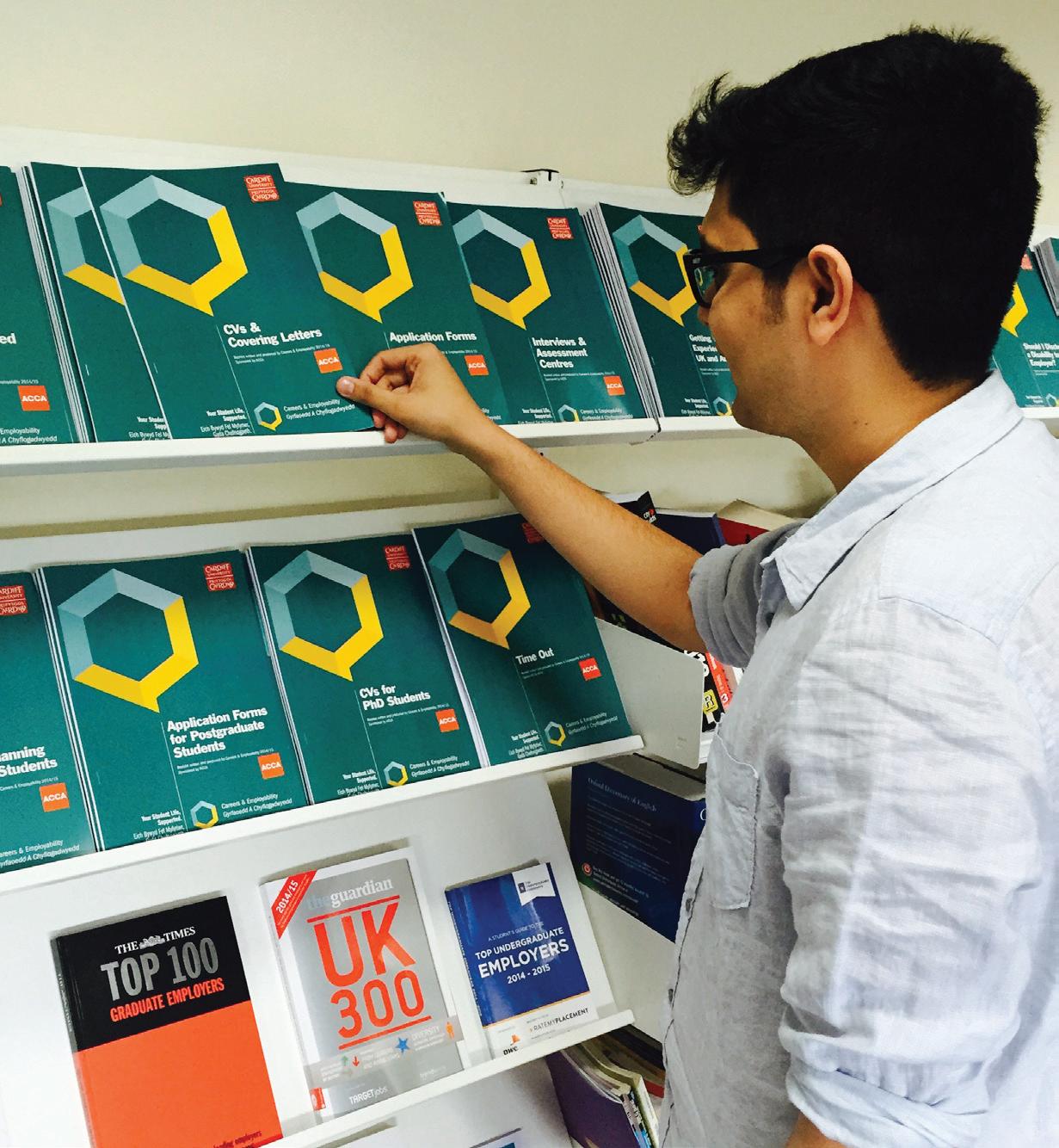
and Employability service a day in advance on their website.
Perhaps you need someone who knows what they’re doing to help you to devise a career strategy, consider your options or tackle in-depth issues. You can book appointments of 30 minutes with an adviser, two weeks in advance.
Tere is also an option for an appointment advising any international students with work visa applications for UK jobs, as well as language and etiquette for interviews and job
search strategies. Tese also need to be booked two weeks in advance.
Tey also run fairs and events throughout the year related to applying for jobs and can give advise on internships, volunteering and classroom experience. Tese can all help to enhance a CV, so their advice and guidance is likely to greatly improve your job prospects.
Email them with any queries at careers@cardiff.ac.uk or pop in and visit them in the Student Support Centre at 50 Park Place.
Cover letters are your statement of motivation and enthusiasm in the format of a business letter
Employers will be anticipating sections on education, work experience, skills, interests and references

9
ADVICE
“ ”
Pictured: Members of the guidance team of the Careers and Employability Service
Pictured: A student reaching for their CV and Covering letters handbook
“ ”
Dan Heard
To a certain extent the cosy confines of student politics are similar to national politics
IPower to the young people
Student
politics matters - we shouldn’t let our opinions go to waste
’ll make this clear before I begin. Student politics matters. It matters to me, and it should matter to you. But many students just don’t seem to care. It’s hard to think of any other section of society that has undergone as epic a transformation as students have. From freewheeling to ban-happy, from askers of awkward questions to suppressors of offensive speech, in the space of a generation. Labour introduced tuition fees in 1998 - and this only increased our right to a voice in how our universities are run. We cannot afford to stifle or ignore student politics.
While the majority of people would agree that political activity is important on some level, when asked “Does student politics matter?” the general response runs along the lines of “Well, not really.” Yet when faced with a more specific question such as “Does your sports club deserve more funding?” or “Do you want to be able to trust your landlord?” the response is more positive. Tis indicates that we do care about issues affecting us,
but for whatever reason we don’t care about the body whose self-appointed mission it is to solve them.
To a certain extent the cosy confines of student politics are similar to national politics. How often do we hear people claim that they do not care about an election because the result will not affect them, or feel that the government is unable to help them, only to loudly complain that they hate the new government a few years later? Te crucial difference, of course, is that the government is recognised as having ‘real’ power. Te role of the Students’ Union is primarily to give students like us a voice, but having one is of no use if those you are speaking to have no ears – or choose not to use them. I feel that this is the fundamental issue with student politics - does it have any impact? Are the policies of the Union implemented? Most crucially of all, how are our lives, as students, now different to how they were before the policies were declared?
Given the number of Union elec-
Financial Aid: A plaster on a problem
Financial aid gives short term solutions, but cannot repair deeper damage
WFinancing a recovery from an earthquake is all well and good, but financial resources are not enough
e abuse the world every day. We think of our resources as finite, we litter like crazy and we are doing our best to destroy our planet in all sorts of ways (we’re not living in space just yet). So we have to help to help each other. Foreign aid is just one way of doing this, but it isn’t simply the responsibility of the government to provide aid to other nations, we should all work to provide aid together.
Following the recent earthquake in Nepal, the British government have sent £15million in aid to help. Financing a recovery from an earthquake is all well and good, but financial resources are not enough. People have lost their homes and their livelihoods, and money cannot repair the psychological damage caused by such disasters. Aid needs to have a long term impact, rather
than be given on a short term basis. Estimated costs of the damage of 2005’s Hurricane Katrina are between $80 and $150billion. While financial resources can stick a plaster over the problems, long term issues such as provision of housing and employment remain.
Yes, the British package of aid sent to Nepal includes more than money. Medics, supplies and equipment (undefined by the government, interestingly enough) have also been sent. But these resources sent by the government have been divided between charities – the Red Cross was given £2million to undertake its work. Te government are therefore riding on the back of the work of an independent organisation. Publicising a figure of “£15million in aid” when in reality it is a charity undertaking the work really is low.
tion campaign flyers that found their way underfoot during the recent SU elections, I don’t think it’s a stretch to claim that ours is a generation disillusioned by political pageantry. Mass indifference is a trend with nasty implications. Today, we have the potential to be a key demographic in the upcoming General Election, but we need to use our voices and votes. I know for sure that a passive consensus does nothing for democracy. Te Union is an arena where we should raise our voices in a place where they can be heard. Te fact is, I think our officers are perhaps the most transparent political figures any of us will ever encounter. If the Union comes to feel that it has exhausted all outreach opportunities, and student interest is still tepid at best, then it is, without doubt, the student body that deserves a reprimand. Why wouldn’t it be? Inquiring minds will always question what motivates a desire for power, even in those involved in small-time Union politics. We need students with a desire to improve
the lives of their peers. Teir influence can be exercised in a perceptible way, and their progress can be traced across campus. It is clear to me anyway that no other politicians will ever have the capacity to meet your needs on a near-personal basis.
For this reason, we need not be disillusioned with student politics, but take advantage of just how accessible our officers are. It should be clear to you by now that student politics matter. Whether you have noticed it or not does not change the fact that it affects you. Winning an election will doubtlessly boost anyone’s ego, but the hard work of Union officers truly begins once campaigns have concluded. As students, the only effort required of us is to pose these pertinent questions—we must ask candidates what they intend to do for us, and once they have been elected we must ask for our officers’ help where we need it. I feel that this is the only way for our Union to be productive and mutually beneficial rather than just functional.

Te politics of foreign aid is controversial. Te UKIP ‘manifesto’ (I don’t think it deserves the paper it’s written on) preaches that trade, not aid, is the solution to the world’s problems. Tat falls down when those in need don’t have resources to trade with in the first place. Te UKIP manifesto also speaks of how cuts to resources such as the NHS are leaving our nation in peril. Tey have seemingly forgotten that we have these resources to utilise in the first place. I sure am pleased to see how they take the NHS for granted. So cutting foreign aid is their apparent ‘solution’ to problems worldwide. Teir arguments are nothing but weak, and I hope people see through them. On the other hand, while I agree with the Green party’s policies on foreign aid, such as increasing education of women
and supporting grass roots initiatives while protecting local priorities, I do not agree that we should increase our foreign aid budget. We are in a financial crisis of our own – despite living in relative bliss compared to some nations – so maintaining our aid budget would work better. Once we have found economic recovery, we can surely help in a more effective way than attempting to fight others’ battles before our own.
So it simply isn’t the sole responsibility of governments to fund foreign aid, because we are facing a financial crisis of our own. We shouldn’t publicise lies about our foreign aid and take the work of charities as the work of the government, but instead we should all be sending resources (be they financial or not) to ensure that our world remains at one.
...we need not be disillusioned with student politics but take advantage of just how accessible our officers are
While financial resources can stick a plaster over the problems, long term issues remain
COMMENT tweet us @gairrhyddcomment
us
us online
gairrhydd.com/comment
email
comment@gairrhydd.com or visit
at
“ ”
Pictured: Kids against hunger providing aid after the Haiti earthquake (Source: DVIDSHUB, Flickr)
Anne Porter
“ ”
“ ”
“ ”

“I guess this is it for us, this is the end.”
A Cardiff University student describes the impact of the Nepal earthquake on her family
Sadichchha Pokharel
On Saturday morning, I switched on my phone to find three missed calls on Viber and a text message from my mum. It read: “Big earthquake here. We’re all safe. Phone may die anytime. Love you.”
I tried calling my parents but couldn’t reach either of them, so I googled “earthquake Nepal”. An earthquake with a magnitude of 7.8 had struck Nepal
I couldn’t tell how long it had been since she had sent me that message, as I had been out with my friends the night before and my phone had switched off at some point. I didn’t immediately panic though. Minor tremors were common occurrences in Nepal. I had experienced a couple of them myself back in Kathmandu and up until that day I’d never imagined one as being actually destructive.
I tried calling my parents but couldn’t reach either of them, so I googled “earthquake Nepal”. An earthquake with a magnitude of 7.8 had struck Nepal that morning; three hours before I saw that message from my mum.
Within hours my Facebook timeline was full of breaking news and pictures of destroyed buildings and roads. Over 200 people had already been reported dead. Somebody shared a picture on Twitter of TV footage that showed pictures of bodies covered in blood and dust, lined up on the ground. I kept trying to call my parents but I could not reach them. Finally, I got a call from my brother who lives in Pontypridd, who had managed to get his friend back home to contact our parents.
Our family was alive and safe and they were at my neighbour’s open car park, waiting for the tremors to stop.
Later that afternoon, I managed to speak to both of my parents. My mum told me that she had been at a grocery store with my dad when it happened. She told me how they had let go of the trolley and ran outside. “I saw buildings swaying left and right, almost like trees, and I remember telling your dad ‘I guess this is it for us, this is the end’.”
Luckily, the tremors had stopped after a while and they had managed to quickly drive back to the house just in time for another aftershock to strike. My family camped out of the house that night, as did every other family in the country. Aftershocks continued. I called my dad the next morning, who told me that a particularly severe one of 6.7 on the Richter scale had struck just an hour ago. As he was telling me about it, another tremor started. I could hear people screaming on the other end just before the line went dead. Being here in Cardiff with everything that has been going on back home has not been easy, and never in my life have I felt so helpless. Death tolls have continued to rise as more bodies are pulled out of the rubble, and the death toll is expected to go over 10,000. My Twitter feed is full of pictures of destroyed buildings, bodies and mass cremations. Aftershocks have continued to strike five
days after the earthquake happened. Tere have been sanitation issues in areas where families have been camping, and there is a major fear of a disease outbreak as bodies trapped under the rubble start to rot. It has all happened so suddenly. Only a couple of weeks ago, I was in Kathmandu walking past temples and historical buildings that have all been reduced to dust now. If I had known that it would be the last time I would ever get to see them, maybe I would have given them a proper look, but having grown up in Kathmandu I had somehow become indifferent to the rich cultural heritage I was surrounded by. I never realised how much colour those temples, many of them over 500 years old, added to the city and I can’t believe they’re all now gone.
Imagine being abroad and seeing pictures of your city struck by a disaster on your Twitter feed. Imagine a huge earthquake hits Cardiff when you’re overseas and images of destruction spring up all over the social media. Part of the Students’ Union has been destroyed, the bridge by Cathays station has collapsed and there’s nothing left of City Hall. Sections of St. David’s has collapsed killing hundreds, your house in Cathays is barely standing and your housemates have been forced to seek shelter in Bute Park. Heath Hospital has run out of space and is turning away victims with minor injuries to focus on those who are fighting for
their lives. Now imagine this on a larger scale, where it has affected an entire country, and you are overseas, helpless, away from your loved ones, unable to do anything. Tat is what my experience has been like.
Up until now, I used to be indifferent to disaster and suffering in the world. I remember seeing news reports when Haiti was struck by an earthquake back in 2010, and flipping through the pages without reading beyond the headlines. For me, disasters and calamities were issues that happened in the “distant world” and would never affect me or my family. I had never imagined that I would ever see Nepal make international headlines for getting affected by a major disaster, that the Internet would get plastered with pictures of my hometown in ruins, that I would ever have to see my own people become the subject of sad charity campaign videos.
Few experiences are as heartbreaking as seeing the city you grew up in reduced to rubble. One thing this earthquake has taught me is to never assume that I’m immune to the kind of suffering I see on newspaper front pages every day, or that the “distant world” where all the bad things happen is any different from my world. Next time I try and dodge a Red Cross fundraiser on Queen Street, I’ll first think about the affected family my quid could possibly help, a family no different from mine that I nearly lost in this earthquake.
“
” Few experiences are as heartbreaking as seeing the city you grew up in reduced to rubble
11 COMMENT
“ ”
Pictured: Te aftermath of the earthquake (Source: Simcsea, Flickr)
COMING TO A LIBRARY NEAR YOU! YN DOD I LYFRGELL YN AGOS I CHI! cardiffstudents.com/revisionaid 11TH MAY - 12TH JUNE 2015 11EG MAI – 12FEDMEHEFIN 2015

Te strange case of Milifandom
Real
politics is being trivialised
Maria Mellor
TThe Cameronettes are working against the Milifandom, and each group is doing their best to ridicule the other
he fandoms. Otherwise known as a group of individuals interested in a person, team or fictional series to varying degrees of obsession. Tese fandoms edit photos, write fanfiction and discuss their subject of interest. Our society is full of them, ranging from Whovians to Directioners. I consider myself to be a part of a few. Tere comes a point, however, when the general fandom simmer turns into a full-blown bubbling boil, spilling over the edges to become out of control. We see how the Beliebers were willing to selfharm for the sake of their fandom, and how mobs and riots happen just for the chance to meet their favourite celebrity. Political fandoms in the run-up to the General Election are appearing rapidly - at best, they are encouraging a lighter side to politics which may bore some, but at their worst, they are trivialising democracy. Te realm of politics seems like an odd place for fandoms to form, however the imminent General Election has triggered a whole range of memes, fans and even fandoms. Political candidates are facing more than just public scrutiny when it comes to campaigning, as more than ever they have achieved higher levels of celebrity status. Tere has
always been a level of trivial fame surrounding politicians. Tat said, blossoming in recent weeks has been the ‘Milifandom’ - a group of people armed with photoshopped flower crowns and awkward pictures of the Labour leader himself. What started as a photo of Ed Miliband eating a bacon sandwich, coupled with a comparison or two to Wallace from ‘Wallace & Gromit’ has escalated into a national news story about an army of ‘teenage girls’ running wild on the internet.
Fandoms can appear light-hearted or just get out of hand. Political fandoms are going against one another - the Cameronettes are working against the Milifandom, and each group is doing their best to ridicule the other. I think that although a few pictures of David Cameron pulling amusing faces and Ed Miliband posing as some kind of ironic sex-symbol may seem harmless on the surface, the deeper implications are far worse. Our society is missing the point of our political system. For a start, we are not in a dictatorship and our country is not run solely by one person. When you vote on Tursday in the General Election, unless you happen to live in the constituency of Doncaster North you are not voting just for or against Ed Miliband, you
will be voting for a particular party and the particular MP who is standing in your area. Moreover, it’s absurd how people choose to judge the party leaders and it vexes me when people say with absolute sincerity that they don’t want Ed to be Prime Minister because he ‘looks like an idiot’ or ‘can’t eat a bacon sandwich’. It’s ridiculous to disregard the efforts of a whole party simply because its leader bares a slight resemblance to a certain animated character.
It trivialises Ed Miliband, just as Ed Balls is trivialised with the so called ‘Ed Balls Day’, a day which commemorates a time when the Shadow Chancellor of the Exchequer tweeted his own name, and female MPs are trivialised as the media scrutinises what they wear rather than how well they’re doing their jobs. To trivialise these politicians is to trivialise the democracy of our country.
Te media is supposed to hold politicians accountable but often all that is focused on is their image. Te public seems to feel safer leaving the running of our country to politicians once we know their names and perhaps a little bit about them, I agree. However, I do not believe that it is necessary to delve into their sex lives, question their choice of footwear or base their decision-making abilities
on the size or shininess of their foreheads.
What I’m saying isn’t just true of the General Election, or even just parliamentary proceedings. Here in Cardiff University, as with most universities, frivolity and triviality is a central part of the proceedings in Students’ Union elections. I can’t say that I’m not a fan of watching candidates making fools of themselves, and I’m always up for a giggle at old campaign videos, however I just feel like image matters too much in electoral proceedings. Is it really necessary or does this obsession with choosing a person over a policy reflect a society’s limited attention span when it comes to ‘official’ matters.
Some might say I’m just not understanding the #Milibanter, but to be honest I don’t really care how sexy Ed Miliband is and I don’t think voters should either. Te wider picture of the General Election should be remembered as we vote for a party not because it’s leader is some kind of perfect cinnamon roll, too good for this world. But rather because we agree with their policies and manifesto. I’m all for young people getting interested in politics, even if they are not able to vote just yet but perhaps there are other ways to encourage teens to choose a particular party.
“
I just feel like image matters too much in electoral proceedings
”
13 COMMENT
“ ”
Pictured: Miliband in his many forms (Source: i-D, Vice)
JASON ROBERTS VS THE WORLD
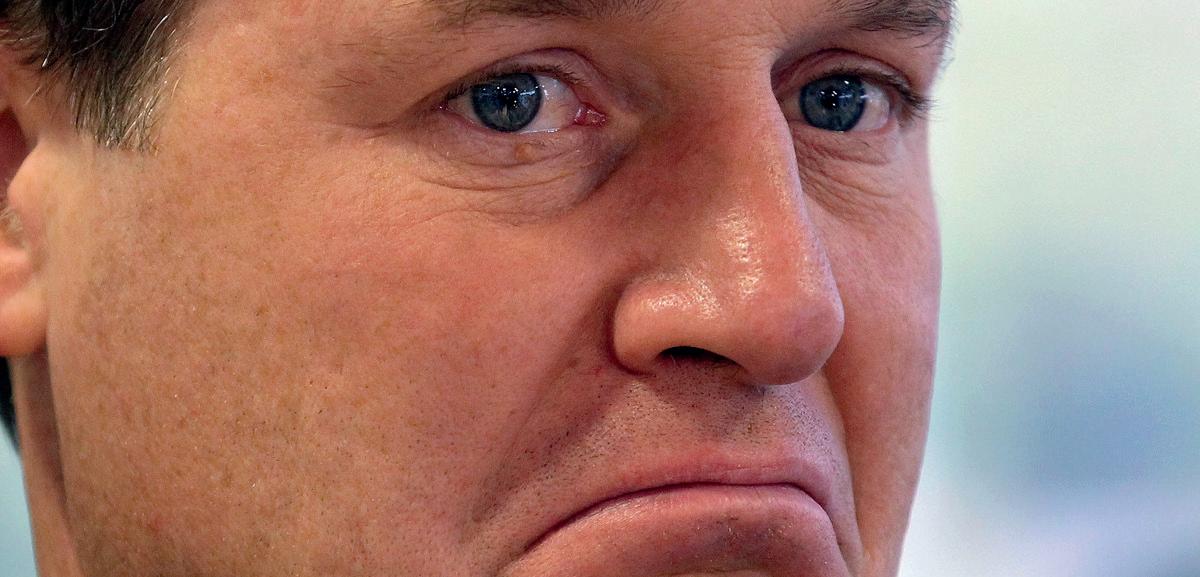
Feeling sorry for Nick Clegg Sympathy for the devil
Jason Roberts
This election was billed as one of the most unpredictable in years, and although politics is never ever going to be an arena for edge-of-your-seat action, this year has been intriguing in a number of different ways. Just look at what’s happened in the last few weeks.
Te smaller parties have seen more representation than ever before and the SNP will most likely prop up a coalition government. Russell Brand may turn out to be a key cog he wants to desperately destroy, and in the system it’s looking possible that Ed Miliband could be in charge of the nuclear launch codes despite not being able to eat a bacon sandwich properly. Politics is truly a strange world.
I can have a modicum of sympathy for a man who’s gone on record and said that he cries to music at night
Despite the chaos going on around them, every party leader will have a plan for life after the election. Miliband or Cameron will either be running the country or running off on a worldwide public speaking tour for which they’ll be handsomely paid. So although there’ll technically be one loser on May 7th, both leaders are going to come out winners in one way or another.
Ten there’s Farage, who’ll be so busy watching out for asylum seekers from the top of Margate clock tower for the next five years that he’ll fade into non-existence, as if he were just a collective imagination in the minds of all our racist uncles. Plaid Cymru’s Leanne Wood and Green Party leader Natalie Bennett will go back to their respective parties with a great deal of pride, knowing that they’ve secured
better representation for smaller parties in future elections. And Nicola Sturgeon is polling so well in Scotland that she might as well start getting business cards with ‘Queen of the North’ embossed on the front.
Which leaves us with Nick Clegg. Poor Nick Clegg. Remember when Cleggmania was a thing? A man who was compared to Barack Obama, Winston Churchill and Jesus Christ (seriously, people wrote these things down and published them) only five years ago is now on course to lose his seat according to the most recent polls.
All the other candidates will be fine after Friday, but Clegg’s future looks like the scene from Inglorious Basterds where the German sergeant gets his head turned into pâté with a baseball bat. It’ll be a brave death, but a bloody, violent, pasting all the same.
Te sticking point for Clegg will always be tuition fees. His name isn’t mud amongst the student population, it’s more like a barrel of rancid diarrhoea. Just the very mention of his name in any university campus will almost certainly be prefixed or suffixed with an obscenity of some kind. His party are now in a position where student Lib Dem voters are subjected to more abuse amongst their peers than UKIP voters, which is actually quite impressive.
At this point as a student, it would be less controversial for me to say, “I’m in favour of a total nationwide puppy cull” than “I feel sorry for Nick Clegg.” But this is my column, not
yours, so here we are: I feel sorry for Nick Clegg.
Don’t get it twisted here. I don’t like Nick Clegg. I’ve just compared him to a rancid bowl of diarrhoea for fucks sake. Nor will I be voting Lib Dem on Friday. But I can have a modicum of sympathy for a man who’s gone on record and said that he cries to music at night. A man whose sons ask why the whole country hates him. A man who, for a brief time during his campaign, looked like he hadn’t been totally poisoned by the toxicity of Westminster. If you want to hate him for tuition fees, I can’t stop you. But you’d have to hate Labour for introducing them in the first place. You’d have to hate the Conservatives for wanting to uncap tuition fees entirely. You’d have to hate over half the MPs for voting for the measure. Te reality is, tuition fees were a war that students were never going to win, since all three parties supported an increase. Te blame does not lie entirely at the door of one man.
Ask yourself this. Does Clegg’s broken promise anger you more than it does that all three parties supported a rise in fees? Does it anger you more than the thousands of other broken promises made by politicians every single damn day? I’m not saying don’t be angry with him, in fact quite the opposite. But consider that for every time we place the blame on him, the other 322 MPs who also voted in favour of fees get away totally free of admonishment. Tey all deserve to be subjected to the same treatment that
we reserve for a single man. Clegg failed us, but he is far from the only one. Tat’s why I feel sorry for him, for having to endure the abuse that should be shared by over half the current government.
In hindsight, Clegg reminds me of a boy I went to school with. He was relatively popular, funny, and a decent footballer. Te sort of kid who would quietly unfriend you on Facebook a couple of years after sixth form, but you wouldn’t feel any great sense of loss. Just another ordinary boy. Ten one day, in the middle of a lesson, he shit himself. And just like that, everything changed. His friends didn’t want to sit next to him, because he might shit on them. None of his jokes landed, because it’s hard to think of a comeback to “DON’T SHIT ON ME MATE!” while 30 boys laugh at you. And nobody feared him on a football pitch anymore, because you don’t want to get ragged by a kid who can’t control his bowels, let alone a ball.
Even now just thinking of him, I don’t wonder about where he is now or what he’s doing, I just laugh to myself and think of his unfortunate accident. It’s literally the first thing that comes to mind. Our memories are wired to forget little intricacies about the things people do, and just focus on the actions that happen to stand out. Tat’s why we’ll end up remembering Nick Clegg, despite his achievements in politics, as the man who shit himself at exactly the wrong time.
His name isn’t mud amongst the student population, it’s more like a barrel of rancid diarrhoea
15
“ ”
Pictured: A sad-faced Clegg, (Source: Huffington Post)
“ ”
“
I’m very proud of my record; I’ve literally helped tens of thousands of people over the last ten years
Jenny Willott speaking to Gair Rhydd
”POLITICS
tweet us @GairRhyddPol mail us politics@gairrhydd.com or visit us
Cardi ff Central’s 2015

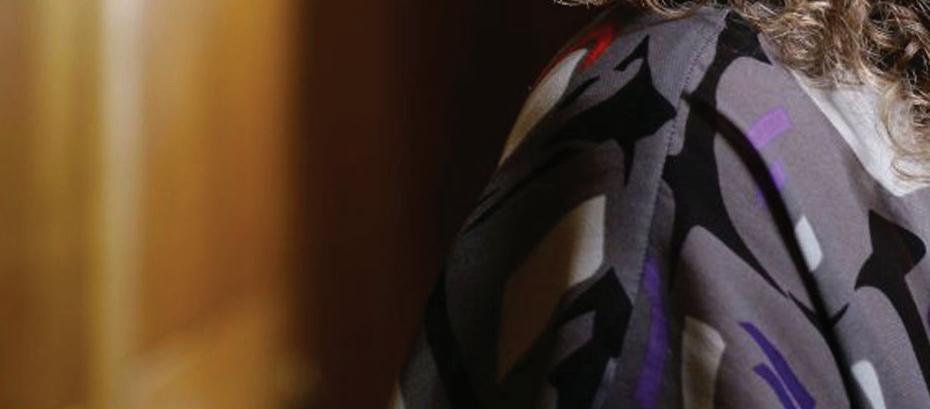
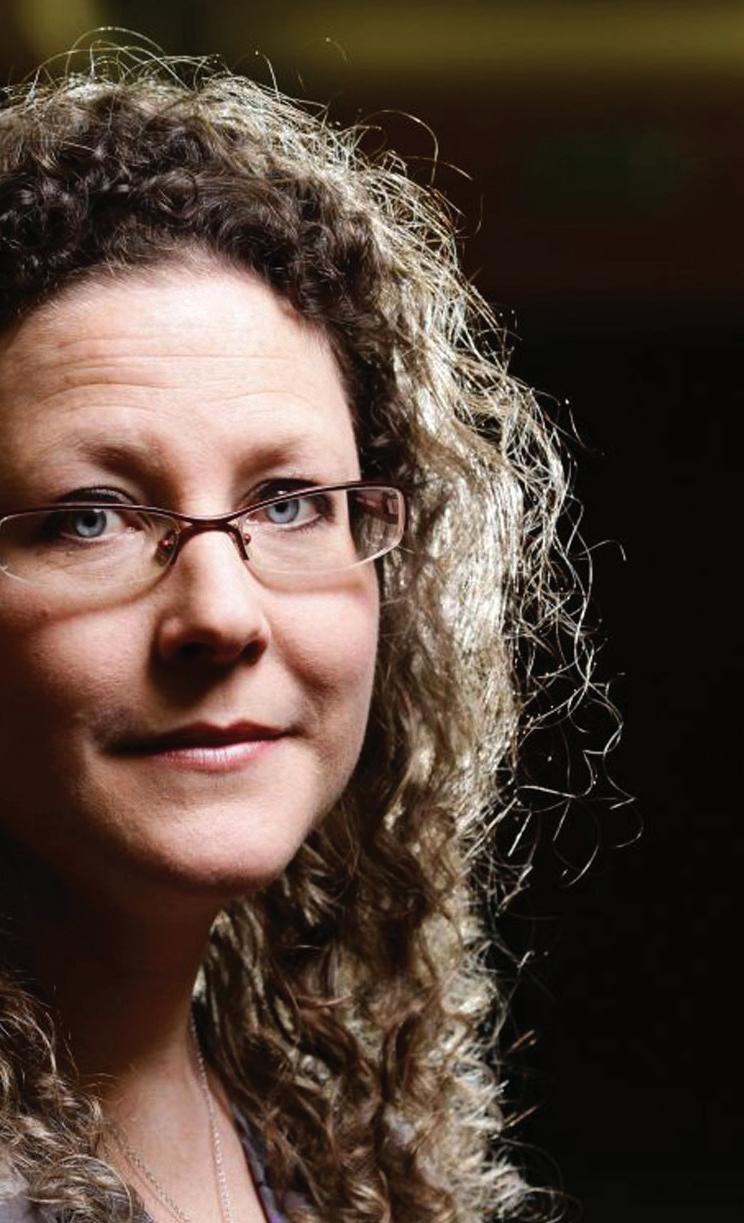

Jenny Willott Liberal Democrat
Early years: Born in Wimbledon, London educated up to MSc level in Development Studies at LSE.
Life before politics: Before being an MP she was the chief researcher for Lembit Opik.
Percentage of Cardiff Central votes in
Experience: Declared in 2005 that her priorities in Parliament would be local health services, tuition and council tax. Willott has held numerous posts within the Liberal Democrats, including Shadow Secretary of State for Work and Pensions and Assistant Whip. She resigned as a parliamentary aide to Chris Huhne in 2010 to vote against the party on a rise in tuition fees. Resigned her whip post at the end of last year to concentrate on her role as a constituency MP. Voted for the bedroom tax causing local protests. Current local campaigns include cleaning up Cardiff, and saying no to monthly bin bag collection.
Percentage
Personal Ideology: Incumbent MP for Cardiff Central since 2005. Believe in local campaigning for local issues, working with communities to hear their issues while campaigning against Cardiff Council actions.
Economy
Te Liberal Democrats will deal with the deficit by 2017/18 with a mixture of spending cuts and tax rises, being leaner than the Tories but borrow less than Labour. Extend their current governmental success and raise the tax-free personal allowance to £12,500.




EU
Te party is committed for the UK to remain in the European Union to improve British economic success.. Tey will only have an In/Out referendum if there’s a plan for “material transfer of sovereignty” from the UK.
Law & Order
Due to their failure, they will scrap Police and Crime Commissioners. Nick Clegg is also long committed to reforming drug laws and ending imprisonment for possessing drugs for personal use.
Devolution
Immediately deliver a funding floor to protect the Welsh Government’s finances. Promise to deliver all of the St. David’s Day agreement, and commit to go further, looking into the devolution of Air Passenger Duty.
Te Environment
Work with the EU to halve greenhouse gas emmissions by 2030, with the aim of decarbonising the power sector. Te party will promote the use of electric cars and public transport, planting 750,000 trees a year.
Other
Te party aims to end continuous at sea nuclear deterrent, cutting back on the trident programme. Increase charges to non-doms.

Jo Stevens Labour
Early years: Born in Swansea and attended the University of Manchester before completing a law qualification at the city.
Life before politics: Moved to Cardiff for her first solicitor job and now director of a UK wide law firm. Lives in Roath and in Cardiff for the last 26 years.
Experience: Claims she’s not a “career politician”, and brings experience to the role from her backround in law fighting for unions.
Personal Ideology: Main rival to Willott and polls suggest Stevens will successfully over-turn a Liberal Democrat majority of 4,576. Openly admits she will vote against her party on the issue of trident, but believes that Ed Miliband is a brave, honest and thoughtful leader.
Economy
Promises to balance the books by the end of the next Parliament, by cutting the deficit every year. Raise the minimum wage to over £8 an hour by 2019. No rise in VAT, NI or basic rate of income tax. Introduce a mansion tax to fund the NHS. Will reintroduce the 50p top rate of income tax for earners over £150,000, and the 10p starting rate.
EU
Will not provide an In/Out referendum on European Union membership
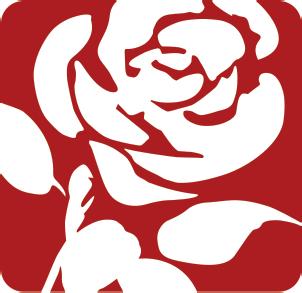
unless there is a significant transfer of powers. Return Britain to a leadership role in a reformed EU, where immigration and welfare rules are reformed. Te Labour party will aim to act as an international LGBT rights envoy.
Law & Order
Scrap police and crime commissioners and ensuring neighbourhood policing is secured. Overhaul the programme to prevent more people being radicalised. Introduce a new commissioner on domestic and sexual abuse.
Devolution
Deliver on the promises outlined in the St. David’s day agreement. Set up a people led Constitutional Convention to determine the future of the UK’s governance. Replace the house of lords with an elected status
Te Environment
Aim to reduce carbon emmissions generated for electricity production to zero by 2030. Push for ambitious targets at an EU and global level to reduce global emissions.
Other
Will clamp down on the use of zerohour contracts by embployers. Ed Miliband has also promised to reduce tuition fees to £6,000 a year. Abolish the nom-dom tax status.
“
Young people can trust the Labour party. We deliver on our promises. Others don’t Jo Stevens speaking to Gair Rhydd
”
Percentage of Cardiff Central votes in 2011 29
Percentage of Cardiff Central votes in 2010
gairrhydd.com/politics
online at
38
Cardiff Central votes in 2011
of
41
2010 38
Gair Rhydd predicts: Labour Gain
General Election candidates
“It’s absolutely critical that we don’t throw away all the hard work of the last five years
Richard Hopkin speaking to Gair Rhydd


Richard Hopkin Conservative
22
Percentage of Cardiff Central votes in 2010
17
Lord Ashcroft 2014 poll percentage for
Early years: Born and raised in Clydach Valley, Swansea. He is a Welsh speaker, attended the local comprehensive school and then went to study law at Cambridge University.
Life before politics: Hopkin has worked as a solicitor and in the financial services. Today he works in a trade body and specializes in financial regulation.
Experience: Hopkin has carried out voluntary service for the community and acts as a trustee for many charities. He has been part of a voluntary group that gives free legal advice to disadvantaged groups. After losing his job for two years in 2008, he set up a job club to help people back into employment. Hopkin stood for the Welsh Assembly in 2011 and stood as a candidate in the May 2014 European Elections.
Personal Ideology: Hopkin sees himself as a modern eurosceptic, as we need to re-negotiate for a reformed EU. Religious values of compassion and looking after minorities and making sure people aren’t left behind are very laudable concepts.
Economy
Eliminate the deficit and run an overall surplus by the end of Parliament. Aim for full employment for all those willing to work. Triple the number of start up loans to businesses to 75,000.
In the event of a draw in a constituency count, the returning officer must decide via a means of chance, like splitting a deck of cards or flipping a coin. Tis has not been happened in a General Election since 1886.
We haven’t gone along with the mainstream bandwagon, we are not afraid of confronting the norm

EU
Te Conservatives will hold an “in-out” referendum on Britain’s renegotiated EU membership by 2017. Protect the UK economy from further integration of the Eurozone. Scrap the Human Rights Act and replace with a British Bill of Rights.
Law & Order
Te Conservatives will have new banning orders for extremist groups. Introduce Extremism Disruption Orders for those who “spread poison”. Tey will restore police and agencies’ access to the communications data they need to fight terrorism and organised crime.
Devolution
Te Conservatives will devolve further powers to the Scottish Parliament and Welsh Assembly. Introduce “English votes for English laws” in the House of Commons. Tey will reduce the number of MPs in Parliament and equalize the size of parliamentary constituencies.
Te Environment
Invest £500 million over the next five years towards making most cars and vans zero-emissions by 2050. Phase out subsidies for new onshore wind farms.
Martin Pollard Plaid Cymru
Early years: Pollard was born in London before moving and spending most of his childhood in North Devon. He came to Cardiff in 1995 to study English & Philosophy, and remained in Wales since.
Life before politics: Pollard taught English in Newport for two years, and then moved to Cardiff to work for the Temple of Peace as an Education officer, where he remains.
Experience: Pollard has been a member of the party for two years. He is the Chief Executive of the Welsh Centre for International Affairs. Being a passionate campaigner, he is a member of the Climate Change Comission for Wales and the Wales Africa Community Links Grant Panel.
Personal Ideology: He is passionate about achieveing social justice, promoting human rights and combating poverty. Having been a student at Cardiff himself he believes students are vital to the success of the city, and more need to be encouraged to stay in the city following graduation.
Economy
Bring austerity to an immediate end and reduce the deficit by investing in infrastructure. Plaid Cymru want to aim for the living wage for all employees by 2020, and make better use of public contracts. Te party want an

Economic Fairness Act to aid growth in all parts of the UK.

EU
In the event of a referendum, the party would campaign to stay in the EU, and call for a referendum to leave be agreed by voters of all four nations. Oppose the EU-US trade deal TTIP.
Law & Order
Scrap the police and crime commisioners created in the last parliament. Get the Victims’ Rights Bill to focus on victims, probation and restorative justice.
Devolution
Support full implementation of both Silk commissions, including the criminal justice system and partial control of income tax. Supports call for parity of powers and funding with Scotland, bringing an extra £1.2 billion.
Te Environment
Oppose fracking in any scenario, and have successfully brought a memorandum on fracking in Wales with the Welsh Government. Bring a Welsh Climate Change Act to set carbon targets. Increase support for renewable energy, and set ambitious recycling targets. Opposes the use of pylons through national parks.
3.5
Percentage of Cardiff Central votes in 2010
9
Lord Ashcroft 2014 poll percentage for Cardiff Central
Martin Pollard speaking to Gair Rhydd Did you
David Dimbleby has been covering General Elections with the BBC since 1964. 51 years on and this election is due to be his last, so make sure you tune in to see him.
The youngest MP ever was 21 when elected at the end of the 19th Century. Pamela Nash became the baby of the house, being 25 when she was elected in 2010.
If Ed Miliband were to be Prime Minister, he would be the first atheist to hold the role. Born into a Jewish family, religion was never a key part of his life and recently stated he doesn’t believe in god.
This election is expected to have more votes against the Conservatives, Labour and the Liberal Democrats than ever before, truly developing into a multi-party system, yet the seats won’t change that much.
17 POLITICS
”
”
“
Election
know?
facts
Cardiff Central
18 POLITICS
“If you believe in green policies, vote for the Greens. Don’t be cynical and use tactical voting
Chris von Ruhland

”

Chris

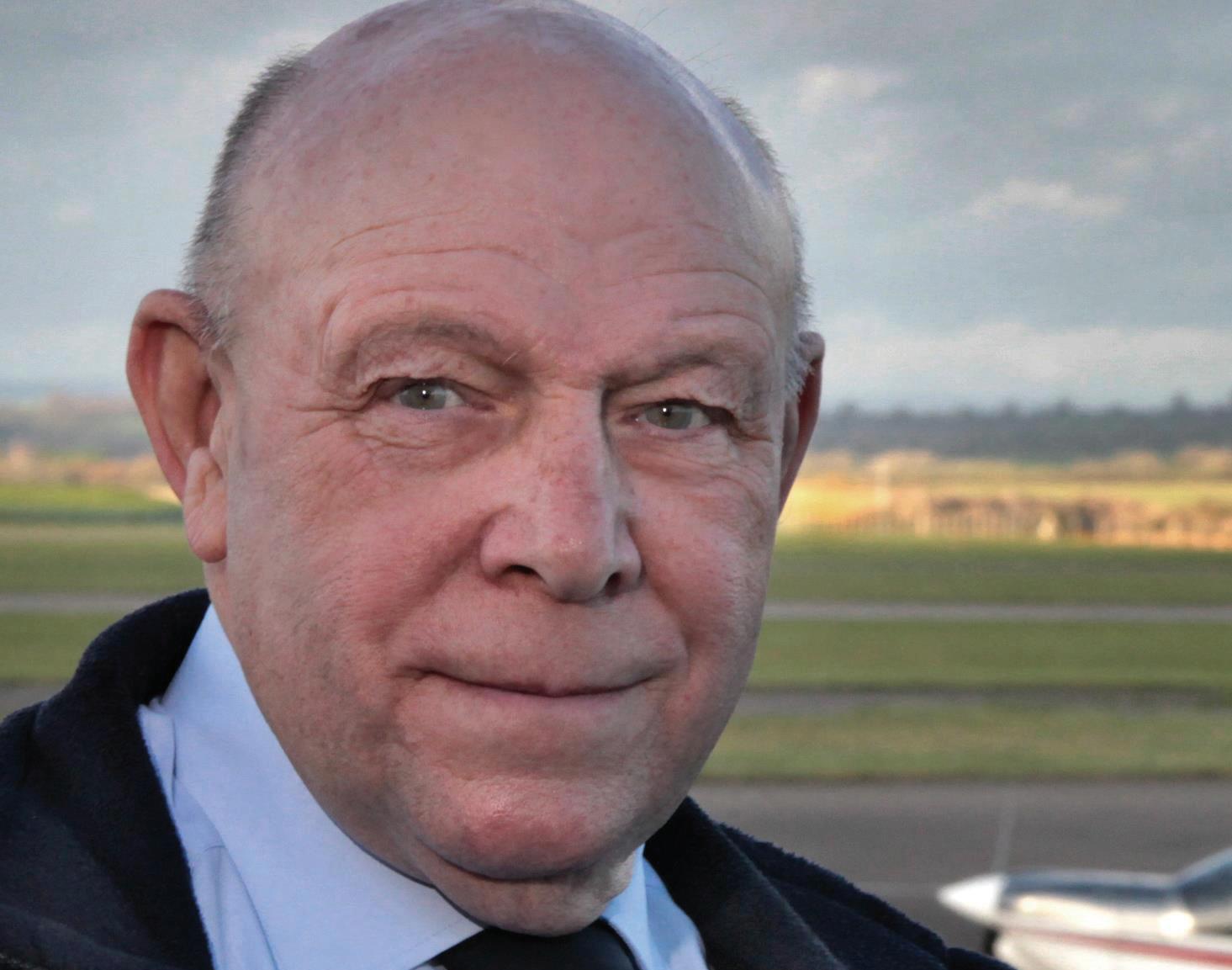
von Ruhland Green

5
Lord Ashcroft 2014 poll percentage for Cardiff Central
15
Percentage of students supporting the Green party
Early years: Chris von Ruhland was born in London and moved to Cardiff thirty years ago.
Life before politics: Von Ruhland has a PHD and works as a biomedical scientist at Cardiff University’s School of Medicine.
Experience: Von Ruhland has stood as a Green Party candidate in local, parliamentary and European elections.
Personal Ideology: Believes we need to move to a more sustainable society, using renewable energy sources to preserve resources. Agrees with party policy on tuition fees and said Willott going against her party on the issue was her highlight as MP.
Economy
End austerity and restore the public sector, create one million jobs that pay the living wage. Pay for this with a new wealth tax on the top 1 per cent, a Robin Hood tax on the banks and the closure of tax loopholes. Increase the minimum wage to £10 by 2020.
EU
Te Green Party is positive about EU action including safeguarding basic rights. However they agree to the possibility of reform and a referendum.
Law & Order
Te Green Party believes there is more crime in unequal societies. Te Greens want to treat drug addiction as a health issue, end stop and search powers, improve city designs to create safer streets, focus on crime prevention measures and return control of the police to local government.
Devolution
Te Greens support Decentralisation. Te Greens would increase real power at all levels, from local councils up to the Welsh Assembly. Increase the number of Assembly members. Push for the Assembly to become a Parliament with powers equal to that of Scotland.
Environment
Te Green Party believes we need a rapid switch to a zero-carbon energy system. Fossil fuels and nuclear power are not acceptable forms of energy for the Green Party. Tey will heavily invest in renewable energy. Tey would break the dominance of the Six Big Suppliers in the energy industry and put community, cooperative and locally owned clean energy generation at the heart of our energy system. Te Green Party believes climate change should drive the changes to our energy system.
Kazimir Hubert Independent
As an independent candidate, Hubert doesn’t believe that political parties should get to decide and dictate policies that will effect everyone.
If elected, Hubert would set up a website and get his constituents to vote for or against proposed bills in parliament, and would therefore vote the way his constituents have voted, ignoring his own personal opinion.
Hubert has been educated at Cambridge University as well as here at Cardiff University. He has worked as a buisness agent, tutor and is currently a honorary museum curator. He is a member of the Cardiff Sufi group, the Worcester Jazz trio and fencing amongst others. Hubert believes politicians should be a link between the people and Westminster.
Anthony Raybould
UKIP
Early years: Born in Pontypridd, South Wales. Moved to London for a period before returning to Wales.
Life before politics: Trained as a gas and electric welder. Operated own transport buisness and went on to qualify as an aircraft pilot.
Experience: Worked with local communities for years and sits on several committees.
Personal Ideology: Believes students have been let down by this Government and wants to improve the lives of those in Cardiff Central. Believes students have been let down by the current governmental system and that STEM subjects should be free.
Economy
UKIP want to remove EU directives that hamper the British economy. Tey want to enhance the UK’s position on the World Trade Organisation by leaving the EU. Will ensure the treasury sticks to plans of cutting the deficit and deliver a surplus.




EU
Call on an immediate referendum on Britain’s membership of the EU and campaign for a vote to leave. Instead, negotiate a trade agreement with the EU.
Law & Order
UKIP would repeal the Human Rights Act and replace it with a UK Bill of Rights. Change the legal system so full prison sentences are served, and parole on a case-by-case basis. Would take the UK out of the European arrest warrant system.
Devolution
Reform funding for devolved parliaments. Reduce the Barnett formula and give devolved administrations further tax powers as compensation. English only votes in Westminster.
Environment
UKIP plan to repeal the Climate Change Act 2008 and end so-called “green taxes” to cut people’s fuel bills.
Steve Williams TUSC
Te TUSC are calling for an immediate end to austerity caused by the current Con-Dem government. Tey are a socialist party and are calling for the end of all privitisation of public services currently ongoing.
Te party rejects the arguments for the TTIP EU-US trade deal.
Teir main policies are to re-nationalise all rail, bus and ferry services to build an intergrated, low-pollution, transport system that works for the people, rather than the few at the top of society. As a socialist party hey believe capitalism needs reform. At the 2015 election the party is
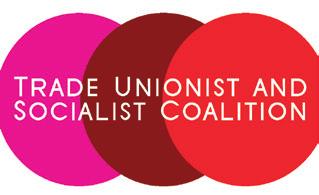

135 parlimentary candidates, being the sixth most represented party across the UK.
9
Lord Ashcroft 2014 poll percentage for Cardiff Central
6
Percentage of students supporting UKIP
fielding
Daniel Heard
IVoting: Why is it important, or even significant today?
n the 2010 election, more than half of all voters voted against their winning MP. Teir votes simply didn’t make a difference, did they? In the UK, the only voters with any real power to choose the government are those who live in marginal constituencies.
Indeed, voters in the most powerful 10 per cent of constituencies will wield more than 30 times as much power as the least influential. Te rest of us have little or no power to influence the outcome of the election. In fact, statistical analysis by the NEF (the new economics foundation) shows that one person in the UK does not have one vote, it is closer to 0.30 votes. In some ultra-safe constituencies the value of your vote falls to practically zero.
However, this is still a vote, and gives the Government a little bit less of a mandate with every vote against them. A generation gap in British democracy is one of the reasons why
Voting represents the beginning; everything else in our democracy follows the right to vote
turnout in UK elections has fallen. Voter apathy and low election turnout are well reported as being serious problems in British politics. Tese issues are not only important for the health of our democracy but are also something of a key consideration in which electoral strategies political parties should adopt.
Studies have revealed that while older people use the ballot box, the younger generation of voters, though interested in politics, are disillusioned with political parties. Cardiff North is within the top ten most powerful constituencies in the country, with voters here having 3.36 times more voting power than that of the UK average.
Having said that though, 62.5 per cent of those who voted in Cardiff North in 2010 did not vote for the winning candidate. In some instances, it can be a case of a few people ‘forgetting’ to vote. In most cases, this was a deliberate decision. During
the last General Election, over a third (36 per cent) chose not to vote because “it wouldn’t make a difference”. Yet the main reason for not voting (cited by 80 per cent of non-voters) was because people failed to see any difference between the main parties.
Parties are nowadays seen as ‘brands’, ‘brands’ of the same product. Tere remains a widespread disenchantment with all politicians. When we vote, we choose the representatives who will make the laws and policies that govern how we live together. Te legitimacy of a government lies in the fact that it is elected. Low voter turnouts may call into question this democratic legitimacy.
While democracy involves much more than holding elections every five years, voting is a powerful way to send a message to governments and politicians. Te more votes, the more powerful the message is. In other words, every vote counts.
Compared to other forms of politi-
2010 GENERAL ELECTION RESULT
cal participation, voting does not require a lot of time or effort – in other words, it is one of the easiest ways to have a say in how your society is governed. Voting is the foundational concept for our entire democratic structure. When a group of citizens collectively elects its representatives, affirming the notion that we govern ourselves by free choice. An individual’s right to vote ties that person to social order, even if that person chooses not to exercise that right.
Voting is a way to take back some of the personal power that can all too easily be lost in a world where idealism and the ability to dream take a back seat to some of our deepest fears. Te right to it has foundational and fundamental importance beyond equality.
Voting represents the beginning; everything else in our democracy follows the right to vote. Participation is more than just a value, it is a foundational virtue of our democracy.
The younger generation of voters, though interested in politics, are disillusioned with political parties
Carwyn Williams
Constituencies to watch on election night
There will be 650 results following voting day and it’ll be hard to keep track of them all. So here’s a list of some of the most significant ones to keep an eye out for that could suggest which way the swing is heading.
1. Cardiff Central
Of course we would put Cardiff Central on our list, we’ve been folloing the campaign here closely and it’s been a hard fought battle. In 2010, Jenny Willott, Liberal Democrat, held a majority of 4,576 but polling suggest it’s a seat turning red. If Labour don’t win this seat, they’re in for a rough night making it very difficult for Ed Miliband to be the largest party. Alternatively if Willott manages to hold the seat, her party will be in a much stronger position than polling suggests, and the Lib
Dems could survive with the majority of its seats intact.
2. South Tanet
Will Nigel Farage dominate politics for the next five years? Here’s where that decision will be made. It will be a big disappointment for UKIP to not win this seat with such a high profile candidate. In 2010 UKIP got 5.5 per cent of the vote. Polling has been inconsistent, it’ll be a three-way race right up until polling closes and Nigel will be hoping it’s seventh time lucky.
3. Rutherglen and Hamilton West
Expected to be one of the first Scottish seats to declare at around 2AM (if we’re lucky). Labour received moe than 60 per cent of the vote in 2010, but polls predict the SNP could be catching up. Tis seat will be an in-
dicator of whether Scottish Labour has been diminished or not. Te SNP would need a 23 per cent swing to win here pushing the Shadow energy minister out, are real possibility according to some recent polls.
4. Sheffield Hallam
Nick Clegg’s majority here is expected to tumble down, with an Ashcroft poll suggesting he’s two points behind Labour. Te Liberal Democrats have increased campaigning in the constituency recently, with Clegg playing a local campaign. Clegg says he is confident, but not complacent. Another vital seat that the Liberal Democrats must hold to avoid a crushing night.
5. Hove
In 2010, the vote share in Hove was closer than anywhere else to the na-
tional vote, and recent local polls are proving similar. Tis is the bellwether seat of recent elections, having voted for every winning party since 1979.
6. Ynys Môn
A Labour held seat targeted hard by Plaid Cymru. After a lot of extra press activity and TV appearances for the nationalist party, it is here we will see whether or not they make gains. Labour had a majority of 2,500 votes in 2010, but in an assembly by-election in 2013 Plaid Cymru had a majority of over 9,000.
7. Southampton Itchen
Labour had a majority of 192 votes here in 2010, this is the kind of seat the Tories need to win.

will be doing an election night live blog to keep you updated on the most important updates
POLITICS
19
“ ”
LABOUR: 19% CONSERVATIVES: 24% LIBERAL DEMOCRATS: 15% OTHERS: 8% DID NOT VOTE: 35%
“ ”
Gair Rhydd
20 POLITICS
Labour will not work with SNP Miliband rules
out any deal with the party, but this could leave him in a pickle
This election has been dominated by the economy, Ed Miliband’s personality and more recently the prospects of a Labour SNP coalition from the Conservatives’ election strategists. David Cameron has repeatedly stated that he is not willing to talk about possible coalition talks, refusing to rule out a coalition with UKIP or even the DUP. It seems bizarre then that his party’s main election campaign is getting his opponent to talk about them. Tis has put significant pressure on Miliband, who earlier in the campaign had to rule out a coalition with the SNP, and take a tougher stance against Nicola Sturgeon by the second TV debate due to English voters’ worries.
This campaign has rather turned the English against the Scots, and the Scots against the English
Tis campaign has gone too far, and is not uniting Britain, not suggesting that the UK is better together, as they were saying only seven months ago. Tis campaign has rather turned the English against the Scots, and the Scots against the English. Many English voters are concerned about what influence the SNP could have at Westminster, or at least that’s what this campaign is telling us. Te SNP have been targeted as extremists that will mess up Westminster. We must remember that their policies are not crazy, not renewing nuclear weapons, stopping austerity and reducing the deficit in other ways, building a better society.
For the Conservatives, this strategy may be working. Teir party have never been strong in Scotland, and so won’t scare away too many voters. For Labour, however, to talk down of

the SNP, to demonize them, it could be disaster for Labour for a very long time indeed. Scottish people are using democracy to vote for who they want to represent them in government. For the main parties to judge this is ludicrous, they’re judging the people for voting for these ‘extremists’. Tis is pushing people away from the main parties even more, meaning if there was another referendum, it would be difficult for them to fight it. Ed Miliband repeatedly tries to appeal to voters by saying he won’t give the SNP another referendum, that voting for his party is the only way to avoid another referendum. A referendum is surely the best democracy for a policy, it should always be up to the Scottish population whether or not to become independent or not, not politicians, not Ed Miliband.
Last week, Ed Miliband went a step further. Talking to Andrew Marr, he ruled out any kind of agreement with the SNP, including a confidence and supply arrangement and was determined to get a Labour majority. Looking at the polls and statistics, this appears extremely unlikely, therefore it seems odd for him to rule out any deal with the only party that could give him the numbers to be Prime Minister. Te latest poll showed that the SNP have actually increased their popularity, hitting 54 per cent, enabling them to get as many as 56 out of Scotland’s 59 seats, leaving Labour with a single MP. Tis would mean that within a year, Labour’s historical dominance in Scotland will have ended, and the drive for change is here to stay.
Last week, I asked Owen Smith, Shadow Secretary of State for Wales, whether it was stupid of Ed Miliband to rule out a deal, given the numbers.
“No I don’t think it was stupid because I think it was indicative of our desire to say to people, if we are going to get rid of the Tory Government you need to vote Labour,” he said.
He went on to say “Our values are, I think, the right values. Yes the SNP laterally have re-invented themselves as the party of the left but it was only a couple of months ago they were in

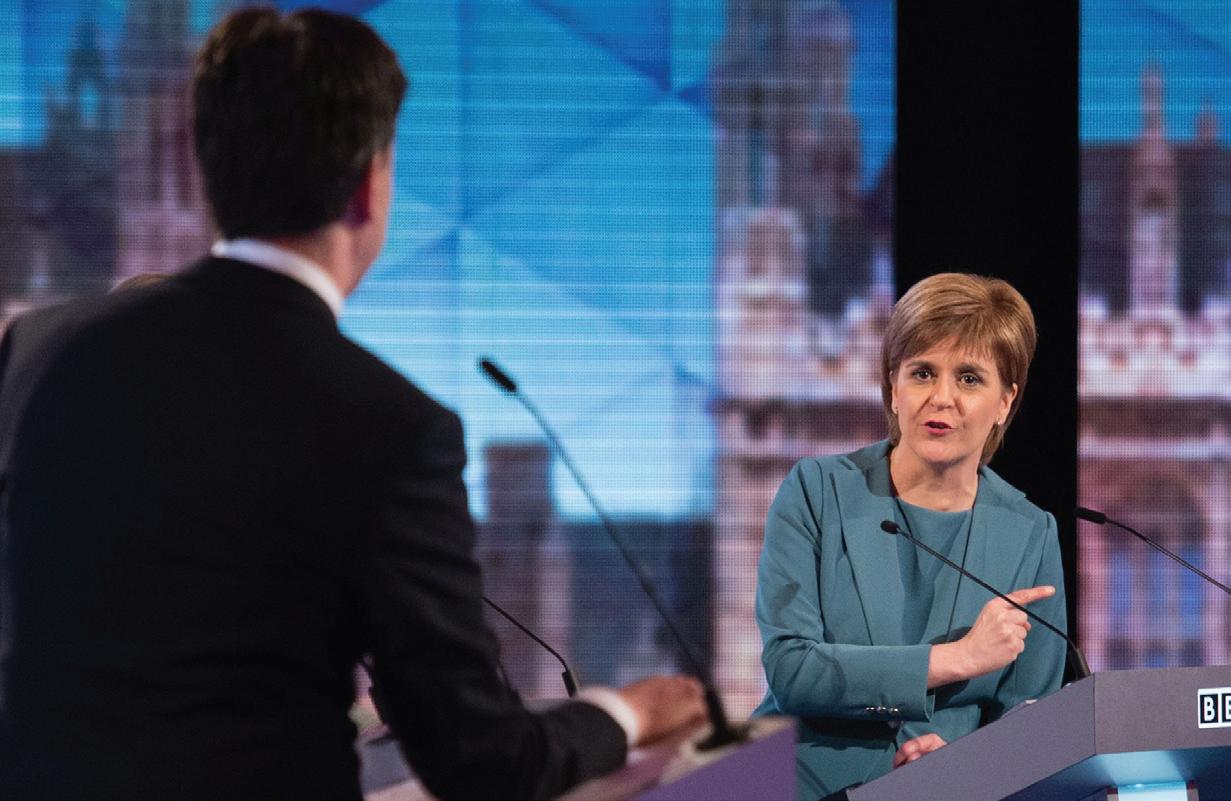
favour of cutting corporation tax for the largest corporations in Scotland. Tey are jolly-come-lately when it comes to left wing politics just as Plaid are in our country. We’ve got to be clear, if you want Labour left wing progressive politics you vote Labour in Scotland and elsewhere, that’s a very clear message.”
What will be Miliband’s strategy then if he has only 270 seats? If Cameron is the largest party, as incumbent Prime Minister he will get the first attempt to try and form a government and present a Queen’s speech. If there are more anti-Tory MP’s (Labour, SNP, Plaid Cymru, Greens) than proTory MPs, then the Queen’s speech will not pass, and Cameron may realise this and resign as PM shortly after the election.
Ed Miliband could make a minority government, which is currently being favoured by the polls, without talking to anyone. It will then be down to the SNP whether Miliband’s government can hold power. Tey could vote against and trigger another election, or vote with it despite there not being any deals, giving SNP MPs very little to play with.
Tis election, however, is a numbers game, and it will come down to individual seats as the results come in.
As you can see from the chart below, on current projections, if Ed Miliband would work with the SNP, he would
get 323 seats, and would be able to survive a vote of no confidence. Although this still wouldn’t give Miliband a majority, if Sinn Fein were to continue their Westminster boycott it would be close enough. In fact, working with the SNP, the Greens and Plaid Cymru would ensure Miliband is PM with a small majority.
On the other side of the spectrum, again on current projections, the current Conservative-Liberal Democrat Government would not get enough seats to gain a majority. Te Tories might decide to attempt a minority government, but this would be very difficult and unlikely due to the number of potential MPs that have ruled out working with the Tories. It seems very unlikely that UKIP will have an influence after the election, as they would not have the number of MPs necessary to take the Tories into power with them.
After we get the results then, it is likely it will be a very slow process to form a government, with many negotiations between several parties. Last time it took five days of negotiations to form a government, this time it will take much longer and could be five years of negotiating different policies and passing laws, creating an unstable government unlikely to last the full five year term, but this is all down to how the country votes, on Tursday May 7th.
If Cameron is the largest party, as incumbent Prime Minister he will get the first attempt to try and form a government
PROJECTED SEAT SHARE AFTER THE GENERAL ELECTION Labour: 267 SNP: 56 Conservatives: 276 Lib Dems: 26 This data is compiled by may2015.com Labour + SNP: 323 Cons + Lib Dems: 302
Carwyn Williams Pictured: Nicola Sturgeon confronting Ed Miliband in the BBC debate.
326 “
” “
Pictured below: David Cameron and Nick Clegg after succesful coalition talks in 2010.
”
Rhiannon Tapp
Interview: Green candidate
Gair Rhydd speaks to Chris von Ruhland
Why would you encourage students to vote for you as the Green candidate?
Firstly I would encourage students to vote anyway as a principle. A lot of young people are disengaged from politics which is why they don’t get the hearings they should do from politicians while elderly people get very good deals indeed.
Why should students vote for the Green Party? We’re going to abolish tuition fees. We see education as a fundamental right and a principle of a civilised society and we will replace that initially with a grant system and then ultimately with a citizens income scheme. In the Green Party we think education should be free to everyone the same way the NHS is.
Do you see a substantial future for the Green Party?
Yes. We’ll need to move towards a sustainable society. It’s the only way we can continue civilisation as we enjoy it. Our current system is geared towards economic growth but of course we live on a planet so we are restricted by this fact. Unless we move towards sustainable economics we’re going to encounter more of the problems we’ve already seen like global warming and the depletion of the ozone layer.
position’ and ‘the government’ and towards a genuine parliament.
What do you say to people who think that voting Green is pointless?
All votes count. Just because we have a first past the post system doesn’t mean that other voices aren’t heard. We’ve seen that with UKIP. Tey currently have one MP but they gain disproportionate amount of influence on the big parties because of the support that they’ve managed to engender, so they might ultimately not receive any MPs but just because you’re not going to get elected doesn’t mean you don’t have an influence.
If you believe in Green policies, vote for the Greens. Don’t be cynical and use tactical voting. Tis is something which is exploited by the two main parties and it perpetuates the system. We should encourage people to vote for what they actually believe in and that’s the only way you’re going to get change.
How do you think Jenny Willott has done so far as MP for Cardiff Central?



“ We need to move away from this idea of ‘the opposition’ and ‘the government’ and towards a genuine parliament
We’re simply exceeding our planet’s capability to absorb our waste products so ultimately we need a more sustainable society and that is green politics. Whether the other parties will pick up on that and become more green remains to be seen but there is definitely a requirement for green politicians.
Who would you prefer to see in power Ed Miliband or David Cameron?
I wouldn’t like to see either of them. Tis is an issue of the way our parliament works. It’s this confrontational politics that disengenders. Tere are politicians of all political persuasions who work together and are beginning to move away from this confrontational politics. To move towards a system of cooperation where we find a common ground is good. Most politicians want to make the world a better place and that’s why I stand and that’s why most of the other candidates have stood. We need to move away from this idea of ‘the op-
I think like all MPs she has worked very hard. She’s certainly been very loyal to the coalition and looking at her record she’s voted for the policies which the coalition has drawn up to agree on. She did vote in favour of a better investigation of the Iraq War which ultimately failed in Parliament. She opposed tuition fees. Tat was where she was actually in the whips office and she stepped down from that so that she could do that so that was one of her highlights I think.
Many students take issue with what job prospects and the economy would be like under the Greens?
Well we’ve got a fully costed economic policy. We’re going to create one million jobs by investing in green technology. We want to improve the prospect for apprentices. Tere’s too much emphasis I think on academic qualifications at the expense of technical ones and there’s a serious shortage of technical staff in the UK. Tis we can overcome by investing in technological prospects. Really it’s thinking about the future: what sort of future do students want to grow up with? At the mo-

ment we have an economic system which, certainly in the West, takes more than its fair share of resources of the planet. Tere will be consequences if we carry on which we’ve already seen with climate change. A move towards a more sustainable society will create jobs in order to achieve that and it is a challenging situation to deal with this. Te Greens also want to reduce the hours people work, there’s a lot of emphasis placed on the acquisition of material goods but there are other very important things like happiness and health which aren’t really measured to any significant extent at the moment. I invite students to think much more longer term.
According to Welsh MEP Nathan Gill, climate change is not man made. Is there any truth to this?
Global warming is a result of increasing anthroprogenics in the atmosphere. In the Green Party we are pro science. People think we’re a bunch of hippies but we’re not like that at all. Science underpins all of our policies. Te simple scientific fact that we live on a planet and its resources are finite is something only we as a party have recognised.
Over 95 per cent of scientists agree that global warming is man made and they are getting very, very concerned at the intransigence of which Western nations have been dragging their feet for decades.
Te Green Party has always said we need renewable energies in order to preserve resources for the future and now people are only just starting

to notice this is true.
We’re melting the Greenland ice sheet and this is terrifying. Tere are, I don’t know how many, cubic kilometers of ice melting on a slope. It’s obvious what the consequences of this will be. If we continue as we are, in the next five hundred years we will be as hot as the Cretaceous period. Te biosphere can’t cope with a transition of that rapidity.
We’re going to see serious problems, crop failure, drought, worsening weather and it’s going to impact on our descendents. What I find astonishing is the sheer lack of urgency amongst Western governments. Tere are many developing countries who are switching to 100% renewables and we’re just dragging our heels which is absolutely outrageous.
Why does the Green Party oppose nuclear power?
Uranium is a finite resource. Tis is something advocates of nuclear power don’t mention. Current rates of consumption mean we have about 40 years of uranium left worldwide so it’s going to run out. At the same time we have this huge legacy of nuclear waste which nobody knows what to do with and we’re just leaving that to future generations to sort out. Tat’s just morally wrong. We have no idea what to do with it, it’s going to last for tens of thousands of years. To continute creating nuclear reactive waste seems to be a spectacularly stupid thing. It’s only for short term gain. Tere seems to be no consideration of future generations in a lot of current party politics.
“
In the Green Party we are pro-science. People think we’re a bunch of hippies but we’re not like that at all

21 POLITICS
Pictured: Chris von Ruhland, Green candidate for Cardiff Central
Pictured below:
Greenland Iceberg
(Source: Ludovic Hirliman on Flickr)
”
”
22 POLITICS
NUS supports illiberal organisation at conference
It’s only been a few weeks since the National Union of Students held its most recent annual conference. Among the many motions passed one has gone relatively unnoticed, having passed without any formal voting procedure. Motion 517 declares that the Union (representing 600 universities, Cardiff among them) will now “work alongside civil liberties organisations including CAGE”, deeming this the best way counter the Governments current PREVENT strategy.
PREVENT is part of the UK’s four part CONTEST strategy, the other components being PURSUE, PROTECT and PREPARE (aimed at preventing terrorist attacks or being ready to respond to potential attacks). PREVENT is supposed to prevent British citizens supporting terrorism or becoming terrorists themselves. The strategy has become controversial in recent years; though some supporters credit the strategy with preventing attacks by forming links with religious organisations and mosques, others argue it serves
to demonise Muslim communities.
Whether or not you support or oppose the PREVENT strategy the decision taken by the NUS to treat CAGE as though they were a legitimate group working for the defence of civil liberties is shocking. After Mohammed Emwazi was revealed as the man wielding the knife in so many hideous propaganda videos released over the past year. CAGE’s research director, Asim Qureshi described him as a ‘beautiful young man’ who was ‘extremely gentle, soft spoken and kind’.
Over the years CAGE has been able to style itself as an organisation primarily opposed to illiberal policies adopted during the war on terror. After Qureshi’s comments on the character of Emwazi this illusion ended, groups committed to human rights and civil liberties ended all links with CAGE.
ureshi certainly made little effort to improve his public image.
The BBC’s Andrew Neil asked if he agreed with the ‘scholar’ Haitham alHaddad (closely linked with CAGE)
A week in the Senedd
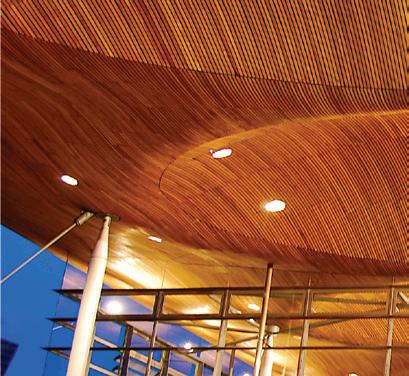

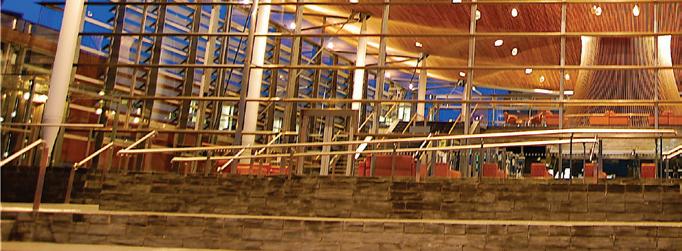
First Minister’s Questions
Leanne Wood gave a heartfelt argument in the chamber last week calling on the First Minister to seek a Welsh quota for refugee status so that Wales can play its part in providing security for those risking their lives fleeing danger and violence. Mr. Jones said he had great sympathy for the idea of Wales becoming a sanctuary for refugees and we should be a welcoming and open society for those that are in need regardless of where they are from in the world.
Te Conservatives prepared questions on the economy, with only a week until the election this was no surprise. Andrew RT Davies was looking
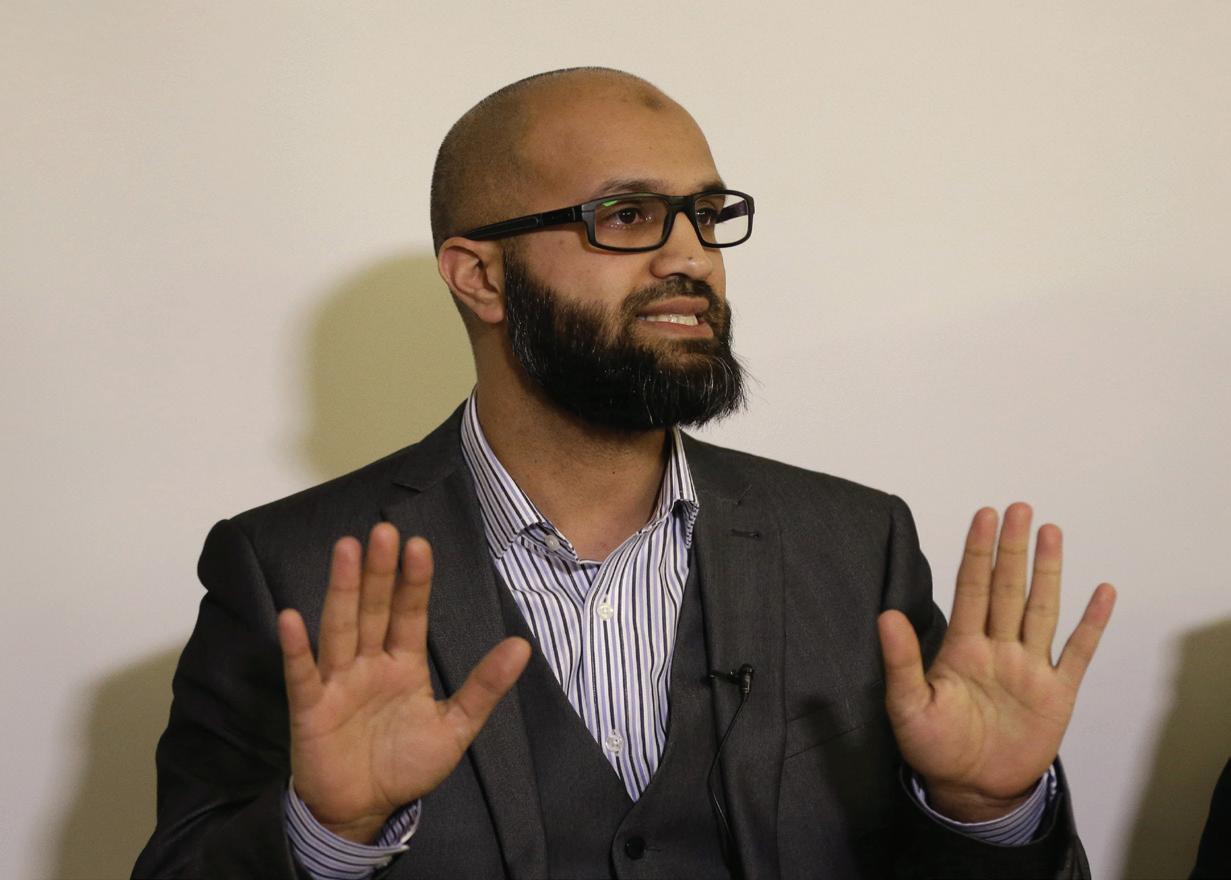
that it was acceptable to take nonmuslim prisoners as slaves, that Jews are descended from pigs, that adulterers should be sentenced to death by stoning and homosexuality is “a crime against humanity”.
For all his previous concern for human rights all Qureshi could do in this situation was smile sweetly and say “look, I’m not a Theologian”.
For those of us born centuries after the great abolitionist campaigns of William Wilberforce and the slave rebellions of Toussaint L’Ouverture, knowledge of any sacred texts isn’t needed to state that slavery is an amoral, evil practice.
And yet this is the public face of the organisation that the Union who claim to best represent the interests of UK students wants to ally themselves with. Haras Rafiq, managing director at the Quilliam Foundation
with Carwyn Williams
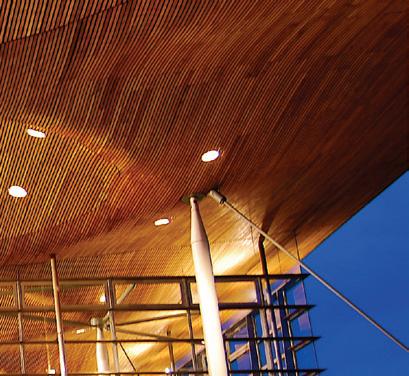

for reasons on how Wales’ third pump of money from the EU would help, when the Welsh government had let communities down on the spending of previous funds. Carwyn Jones could not answer the question specifically, despite having several opportunities, but avoided the main question answering that GDP had grown. Te Liberal Democrats seemed convinced that they would be part of the next Westminster government and would deliver an extra £150 million for education in Wales. Jones however was not convinced stating that we don’t know the result of the election as of yet, and that this money could be given on the one hand by Kirsty Williams’ party but taken away in another
hand. He did however agree that education is a continued commitment for his party and the Lib Dems, and was looking forward to talks on how this money could be spent.
Te South Wales Metro would be a game-changing project, that can’t be done half-heartedly. It’s a once in a lifetime opportunity that can transform the economic prospects of up to a million people in Wales. Tere is however a long way to go, with many questions to be answered first. A statement will be issued next month regarding the matter.
Local AM Jenny Rathbone mentioned local renewable energy solutions in Wales, pressing on the minister to work with the next Westminster Government to break down the national grid monopoly, so local communities can get security in selling energy. Jones however emphasized it would be important to ensure the grid wasn’t weakened, as it is currently difficult to attract investment to areas in Wales with a very poor national grid connection.
Exam results will be better
Welsh Education Minister Huw Lewis has promised that Welsh exam results will improve this summer, and his ambitious program was making progress.
(a organisation of liberal Muslims whose opposition to such bigotries may make them unwelcome to todays Student politicians) slammed this decision in a piece for the blog Left Foot Forward. Praising the Union’s past commitment to racial and gender equality, Rafiq also expressed his shock that the NUS would choose to work with such an organisation, “I have to ask: is it really worth working with an organisation that would like to undo all the work progressed by the NUS for gender equality? Are CAGE the only organisation you can work with on this particular issue? Is the bar really that depressingly low?”
In making this decision, NUS executives have betrayed many students, not just female and LGBT students but the vast majority of Muslim students who oppose such barbaric attitudes.
Praising the Union’s past commitment to racial and gender equality, Rafiq also expressed his shock that the NUS would choose to work with such an organisation
“ ”
Last year, the Welsh Government announced that 40 schools would get up and running in a new £20m programme to help improve exam results. Te investment was announced after international Pisa results showed Wales had the poorest performance in the UK in key skills.
Possible gender identity clincic for Wales
Te Welsh Assembly voted last week to trigger an independent study into the feasability of opening a gender identity clinic in Wales. Currently, people have to travel to England for treatment. Tey also voted for gender awareness training for teachers. AM Peter Black, who proposed the motion said “I’m proud we are walking along the right path to equality.”
Welsh Ambulance Service improves
Te head of the Welsh ambulance service has said the service has “turned the corner” when it comes to responce times. Te Welsh Government was heavily criticised when December figures showed that the target of eight minutes was met on only 42.6 per cent of calls. In March the figure is up to 52.8 per cent.
Jamie McKay
Pictured: CAGE research director Asim Qureshi






May
Uriah Heep
07/05/15, £22 ADV
Hoobastank/P.O.D/ Alien Ant Farm
15/05/15, £22 ADV
Legend –
Bob Marley Tribute
24/05/15, £13 ADV
June
Young Guns
04/06/15, £12.50 ADV
July
Karyn White
11/07/15, £20 ADV Peace
October
03/10/15, £15 ADV
November
The Staves
03/11/15, £16 ADV
Everything Everything 07/11/15, £17.50 ADV
Happy Mondays 29/11/15, £28.50 ADV
February
Fun Lovin' Criminals 18/02/16, £23.50 ADV
@CARDIFFUNION CARDIFFBOXOFFICE CARDIFFBOXOFFICE.COM | All tickets subject to booking fee
tweet us @GairRhyddSci
mail us science@gairrhydd.com or visit us online at gairrhydd.com/science
Science policy: What the major parties have to say
Shanna Hamilton
Meryon Roderick
On the 7th of May the UK will vote to decide who will lead us throughout the next half decade after an election year unlike any other in recent memory. Rather than the standard choice between Labour and the Conservatives, there are now seven parties that have become prominent enough to be included widely in media coverage and to participate in the leadership debates. Whilst it may still be the case that the Prime Minister for the next five years will either be Ed Miliband or David Cameron, either man may well need the help of one of the other major parties to gain a majority. Tis means that this time around it is important to consider the policies of all seven parties. Te dominant rhetoric of

The Conservatives
Will invest £1.1 billion in science capital each year, rising with inflation up to 2020/21
Put NHS at “Frontier of science”
Promote STEM subjects at all levels of education
Internationally promote the ban on cosmetic tests on animals

The Labour Party
New long-term funding and policy framework for science and innovation
this election has revolved around the NHS, housing and immigration becuase these are the topics that most engage the wider public. However, this means that aside from the Green Party’s focus on the environment, science policy has been given very little space on air or in print. Tis is a problem because the way a ruling party engages with and values scientific progress has a major effect on almost every aspect of a country, from healthcare through to defence. Below we have compared the major science policies of the Conservatives, the Labour Party, the Liberal Democrats, UKIP, the Green Party, the SNP and Plaid Cymru so that you can see what may happen to science in the UK after the 7th of May.
Invest £3 billion in protecting the environment
New Technical Baccalaureate for 16-18 year olds and reduced tuition fees
Protect global wildlife
End public subsidy for onshore windfarms
Committed to a minimum independent nuclear capability
Net zero global emissions goal
Want to build a strong record on animal welfare




Replace the House of Lords.
The Liberal Democrats
Will ring-fence science budget
Will set a legally binding decarbonisation target
Clinical trials should be registered
Promoting STEM subjects and high skill immigration
Invest in new treatments
More research on the TB Eradication Strategy
Accept that new nuclear power stations may play a role in UK energy
SCIENCE




UKIP
Improved mental health services
Increase uptake of science education
GM foods.

The Green Party
Increase science and engineering investment
Promote science and engineering education
Vastly reduce animal testing
Aim to recycle 70% of domestic waste by 2020

The Scottish National Party
Ministerial-led Innovation Forum and £1 million Innovation Challenge Fund
Retain nuclear deterrent
Sex Education
Will increase apprenticeships and support reduction of tuition fees across the UK

Plaid Cymru
Would abolish tuition fees in Wales for STEM subjects
Repeal climate change act
Energy and climate
Protecting wildlife
Against the growth of Genetically Modified Organisms
Scrap Trident
Increase use of renewable energy
Improve species protection
Support the All Trials campaign
Increase use of renewable energy
Oppose the replacement of Trident
25 SCIENCE
Take a polling card selFie to win a £20 Taf voucher. Tweet #IVotedCSU
If this research proves successful we may be just a few years away from a new treatment for asthma
Asthma breakthrough for Cardi ff researchers
Root cause discovered with potential for new treatment in “a few years”
Cardiff university researchers may have found the root cause for asthma and are testing a drug that could stop it.
Published in journal Science Translational Medicine this month, researchers at the School of Biosciences, along with collaborators at King’s College London and the Mayo Clinic in the USA have results that are “incredibly exciting”.
Asthma affects over 5.4 million people in the UK, and last year 314,000 people sought medical intervention in Wales for the disease. Te NHS spends over £1 billion a year, and while it is controllable for most sufferers, asthma kills three people per day in the UK. Symptoms include wheezing, coughing and tightness in the chest due to the narrowing of the airways, often caused by environmental triggers.
Asthma varies in severity, and when it affects 1 in 10 people across Wales, it is no surprise that many university students suffer too. Tird year student Greg McChesney said, “While my form of asthma is relatively minor and fairly easily managed, it is prone to flaring up during the winter months, Any contact with very cold or dusty air can trigger a tightening feeling in your chest and difficulty breathing normally, like there’s a weight on your chest. A few years ago after swimming in very cold water I suffered a mild asthmas attack, and while I didn’t need to be hospitalised it was still an alarming situation to be in.”
Te latest research paper from
UHW
Cardiff describes that while most traditional treatments such as corticosteroids and bronchodilators – those brown and blue inhaler pumps – work for most sufferers, a “significant minority of patients whose symptoms fail to be controlled” remain, “who face chronically impaired quality of life with increased risk of hospital admission and even death.”
According to Professor Danielle Riccardi of the School of Biosciences, principal investigator of the study, “For the first time we have found a link between airways inflammation, which can be caused by environmental triggers – such as allergens, cigarette smoke and care fumes – and airways twitchiness in allergic asthma.”
By studying mouse models of asthma, as well as human airway tissue from healthy and ill patients, researchers have proved the role of a calcium sensing receptor in causing the disease, known as CaSR. Riccardi said, “Our paper shows how these triggers release chemicals that activate CaSR in airway tissue and drive asthma symptoms like airway twitchiness, inflammation, and narrowing.”
Te study showed that asthmatic patients and mice express much more of the CaSR receptor than their healthy counterparts, indicating an important role in the disease.
Te group have also looked in depth at a class of drugs called calcilytics in treating the condition. Originally targeted for use in osteoporosis over 15 years ago, these drugs target the CaSR receptor to induce hormone

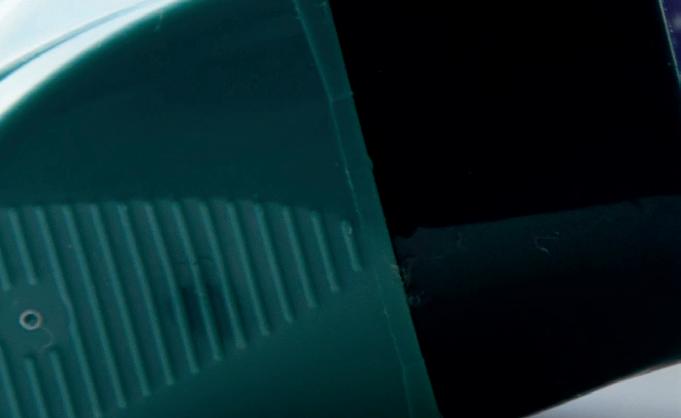
release. However, efforts to treat bone thinning failed, and now repurposing the drug might be the answer for difficult-to-treat asthma cases. “Using calcilytics, nebulized directly into the lungs, we show that it is possible to deactivate CaSR and prevent all of these symptoms,” Riccardi added. Te drug appears to reduce airway hyper responsiveness and inflammation in the mice that were tested.
Te way forward is to now seek more funding from research councils and charities, to determine the effectiveness of this type of drug in severe cases of asthma, and trial on humans within two years. Riccardi said, “If


we can prove that calcilytics are safe when administered directly to the lung in people, then in five years we could be in a position to treat patients and potentially stop asthma from happening in the first place.”
Samantha Walker of Asthma UK, a charity that helped fund the research, said: “Five per cent of people with asthma don’t respond to current treatments so research breakthroughs could be life changing. If this research proves successful we may be just a few years away from a new treatment for asthma, and we urgently need further investment to take it further through clinical trials.”
baby UK’s youngest organ donor
New born baby Teddy Houlston who tragically lived for less than two hours became Britain’s youngest ever organ donor last year, it has now emerged. Doctors at Cardiff ’s University Hospital of Wales carried out pioneering surgery just minutes after the baby’s death to retrieve his kidneys. Tis has now helped to save the life of an adult with kidney failure.
He lived and died a hero. It is impossible to explain how proud we are of him
Teddy’s father, Mike Houlston
Parents Jess Evans and Mike Houlston from Cardiff are hopeful that the success of Teddy’s operation will spur other parents to give consent for organ donation in similar circumstances, as the opt out deadline of December 1st nears. “He lived and died a hero. It is impossible to explain how proud we are of him,” said father Houlston.
Unfortunately, Teddy suffered a rare brain condition, anencephaly, which stops the brain and skull from developing properly. A major portion of the brain is missing, and with very few exceptions, babies with the condition are usually still born or die within minutes of birth. Evans was carrying twins when she was told at 12 weeks
pregnant the terrible news. Abortion was offered, but after considering the options, the couple decided to continue with the pregnancy. “We thought that even if we had a moment with him, or 10 minutes, or an hour, that time was the most precious thing that we would ever experience.”
While for many parents even contemplating organ donation can be extremely difficult, for Teddy’s, it seemed a logical way to “help them grieve”. Although it is usually medical professionals who will first broach the subject, due to the unusual circumstances of the pregnancy, it was the couple that first suggested it. Doctors originally told them that the procedure would not be possible, because Teddy was very young.
Specialist nurse from NHS Blood and Transplant Angharad Griffiths, however, said that while Teddy’s transplant proved “challenging”, she has “every belief” that similar donations from very young donors can successfully be carried out in the future. She also added, “I know that Jess and Mike firmly believe that this is some-
thing they would like other families to be offered if they are in a similar position. Te choice for organ donation for them was a natural decision.
Tey just believe that families should be given the choice and it should be something considered by all families in any similar circumstances.”



Pictured: Inhalers are the frontline treatment for asthma sufferers but don’t always work. (Source: Pewari, Flickr)
donor.
(Source: Te Organ Donation Research Consortium
27 SCIENCE
Pictured: Pioneering surgery took place at the UHW to retrieve organs from UK’s youngest
“ ”
“ ”
Shanna Hamilton
Shanna Hamilton
Looking back over the Act One calendar it’s understandable why our members are so passionate about the society
SOCIETIES
tweet us @gairrhyddsoc email us societies@gairrhydd.com or visit us online at gairrhydd.com/societies
Barney’s Note
Hello everyone - We live in times of change! I have just spent the last hour and a half talking to the newly elected executives who will be running societies next year, where about 300 people
What’s On
Monday 4th May
Student Advice Student Advice Drop In Noon - 2pm Heath Park Meeting Rooms
Tuesday 5th May
Earth Society Earth Soc Summer Ball 7pm – midnight
Wednesday 6th May
Cardiff University Students’ Union Revision Aid: Exam Stress Session 2pm - 3pm Room 4I, Students’ Union
turned up which is a huge number! It was a lovely moment for me as it demonstrates quite clearly that next year will be a great year for societies –there are so many people clambering to run the damn things! Good luck to
everyone who will be taking up committee positions next year – you are in for a great experience. In other news, the Societies Ball is less than a week away. Please get in touch if you want to sell your ticket as it can only be done through us and there are people who missed the deadline to buy a ticket! If you are coming – hooray! It is going to be amazing and I look forward to seeing many of you there!

ComScI Society
ComScI End Of Year Ball
6th May 6pm - 11pm Cardiff Marriott Hotel
Friday 8th May
Graduate Centre Postgrad BBQ on the Balcony 6pm - 9pm
Guild of Societies Te Societies Ball 2015 6.30pm - 2am Te Great Hall
Saturday 9th May
Boardgaming, Roleplaying and Wargaming League All Day Magic the Gathering
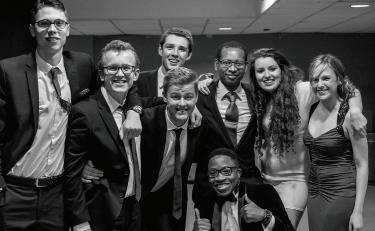
9.30am - 10pm Room 4J, Students’ Union
Cardiff Student Media Cardiff Student Media Awards 2015 7pm - 11.30pm Te Great Hall
A Tough Act (One) to follow
Sunday 10th May
Boardgaming, Roleplaying and Wargaming League CROW roleplaying afternoon Noon - 6pm Rooms 4H/I, Students’ Union
The drama society reflect on a successful year
On Tuesday 29th April Act One held its AGM. AGM’s aren’t known to be the most thrilling of occasions, constitutional changes and financial reviews aren’t exactly captivating to an audience. Yet the meeting went on for over three hours with tense debates, laughter and applause - pretty similar to an Act One Production. Looking back over the Act One calendar it’s understandable why our members are so passionate about the society. Over the year we have produced 11 shows and sold over 1,500 tickets.
Te season kicked off with the pantomime; A Christmas Carol. A bawdy retelling of the Dickens classic with some song parodies thrown in for good measure. After Christmas we saw Much Ado about Nothing start the new academic year, bringing sass and sophistication to Shakespeare.
Perhaps the most impressive thing about Act One’s calendar this year was the sheer number of original writing that was produced. Te Count of Monte Cristo, an adaptation of an Alexander Dumas novel, opened to a sell-out crowd. New writing also took the form of two absurdist plays, Moctezuma Nosebleed and Voluntas Electio, both written and directed by Act One members.
Musicals also came in the form of new writing. A Teory of Justice, a
philosophical romp through time saw its first premiere outside of Edinburgh.
Battle Scars: a new musical again written and directed by an Act One member, performed alongside the Cardiff Fringe Festival and received many a standing ovation.
Writing this I am overwhelmed with the sheer number of productions created for this year and I have yet to mention Faustus and According To His Need, two plays that were both equally as entertaining as the above mentioned. While this season draws to a close we still have Staging A Coup, a night of ten minute plays written, directed and performed by Act One again, adding to our portfolio of original writing.
After this is our ball, a night of champagne, pretty dresses and beautiful people, on the 5th May. As Publicity Officer this is the last official article I shall write and soon my role will be passed on to a new committee. So with my closing words I would like to thank everyone who has contributed to Act One this year. Be it through performing, directing, crewing or simply watching, without your support this year would not be possible.
I have enjoyed every single minute of my time in Act One and I will not only be leaving university this year with a degree but also a whole new family.
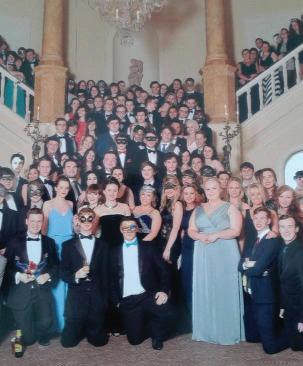

Have an event you want covered? Email: societies@ gairrhydd. com
Aimee Hardman
Pictured: It’s Ball season. CSM awards 2014
(Photographer: Cardiff University Students’ Union)
“ ”
Pictured: Te 2014 Act One ball
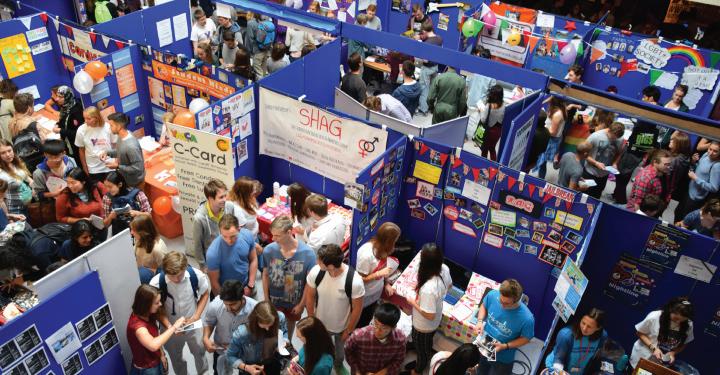
The Societies Council celebrates a year of success
Hannah Sterritt
Over the past academic year, clubs and societies have benefitted from the new Give It A Go programme
The second Societies Council took place on the last two Thursdays and was a positive reflection on the past year. The meeting was presented by the current VP Societies and Campaigns, Barney Willis.
There has been a steady rise in societies membership since 2012. In 2012/13, there were 138 societies, 834 committee members and 5,877 unique members. This rose to 167 societies, 1,056 committee members and 8,596 unique members in 2013/14, and the total currently stands at 201 societies, 1,184 unique members and 7,945 unique members, a staggering total which is to be commended. This now means that just over 1 in 4 students are part of at least one society.
Over the past academic year, clubs and societies have benefitted from the new Give It A Go programme. Since starting in August 2014, Josh Gibbs has made exemplary progress with the programme, engaging with 1,573 unique students and enabling them to take part in activities without commitment. There have also been two opportunities to travel with Give It A Go to Paris and Edinburgh for a very competitive price, and the scheme are running another trip to Amsterdam at the end of exams.
At the beginning of the year, committee training took place over four days to teach skills required for the running of committees. In addition, there was a committee
networking evening where free pizza spurred on students to socialise and plan inter-society events. There were also ten society forums held in two points in the year and provided an opportunity for committee members to give feedback on their experiences in societies. Another example of the opportunities for learning transferrable skills between societies and in employment was the Employability Training Day on the 14th February.
On Tuesday 28th April, a new committee member welcome talk was held in the Great Hall in the Students’ Union, where over 300 new committee members took the first steps in running their new societies. The evening was a glimpse into the future and an exciting year to look forward to for this new level of responsibility.
Barney also celebrated the success of the large events that took place this year, including the Freshers Fairs, Refreshers, Go Global, Cardiff Fringe Festival and the Societies Ball.
For the first time, Y Plas was used as well as the Great Hall for two consecutive days of Freshers Fairs in September, with the introduction of companies alongside the society stalls. The added bonus of Dominoes pizza as one of the companies present provided a boost in morale during the long days. As predicted, sign up sheets were used a lot less than online sign ups, as well as the Give It A Go events providing potential
members with an opportunity to try the societies before they committed to buying membership.
Refreshers took place at the end of January exams and was a new event this year, giving students a second opportunity to have a significant number of societies all in the same room for ease of choice.
The second annual Cardiff Fringe Festival happened in March and featured a celebration of performance and artistic societies over eight days.
The sell out Go Global event ended the week’s festivities featuring 12 different societies and was broadcast live by CUTV.
The Societies Ball will end the year on the 8th May with a large celebratory event in the Great Hall finishing with an awards ceremony.
A new room bookings system was created after feedback from the Societies Council in 2014. There are still a few problems associated with this however a form is making liasing with the University Venues team more accessible.
The previous VP Societies and Campaigns, and current President, Elliot Howells, introduced the tier system in his term last year. Barney added type specific tier objectives following feedback, enabling societies to more easily gain a higher tier. As of April 2015 we have 31 Gold societies and 20 Silver societies.
The societies finance report was next on the agenda, with the Guild of Societies sales taking in £33,371,
a larger proportion than the £20,500 Block Grant given from the Union to the Guild, used to allocate to different societies’ budget applications.
Looking ahead to 2015/16, I will take on the role of VP Societies and will take up office as of July. Barney anticipates the growth of Go Global and the Fringe Festival, easier online elections for committees and more employability support for committees. This will be in addition to my manifesto pledges.
Elections for the Societies executive were next mentioned, as the nominations for the positions of: Activity & Appreciation Officer, Course Based Officer, Cultural & International Officer, Discussion, Campaigns & Awareness Officer, Heath Based Officer, Performance & Artistic Officer and Political & Ideological Officer have opened.
The Societies Executive Committee represents all committee and society members within their category. In addition to representing a society category, the roles also involve monthly meetings concerning Societies’ governance, development meetings with committees, volunteering at key society events and playing a part in all major decision making within societies. Nominations close on the 15th May.
The evening finished with an oppportunity for feedback, where all present highlighted a good and a bad element of societies.
As of April 2015 we have 31 Gold societies and 20 Silver societies
29 SOCIETIES
Pictured: Te Freshers Fair 2014 (Photographer: Laura Sargent)
”
“
”
“
PARK LIFE
A note from Claire
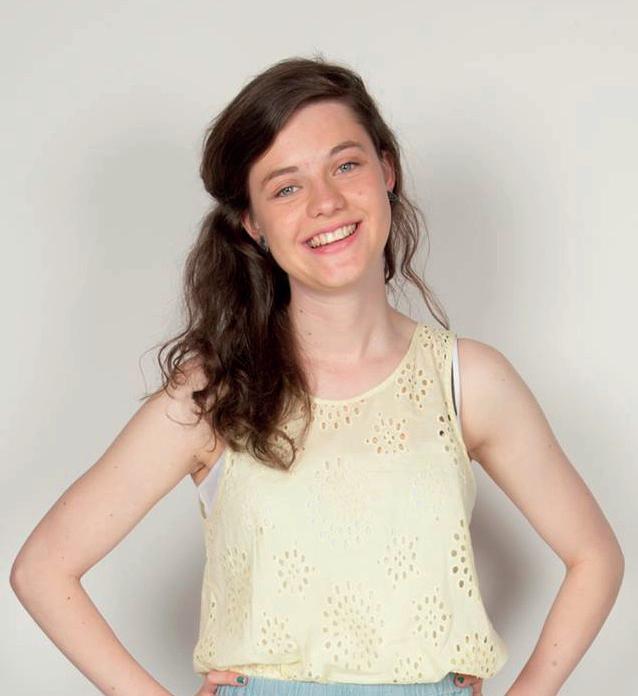
Hi everyone! I hope you have all had a good few weeks and revision is going well. I am sure to bump into a few of you over the next few weeks as the sabbatical officer team will be heading up to the Cochrane Library to hand out free coffees, teas and biscuits to help fuel you through all of your revision. Keep an eye on my newsletter and Facebook posts to see the exact dates that we’ll be coming, and make sure you come along - it would be great to see you!
In other news, Hannah Chandler who is one of our Psychology academic representatives, has been working towards putting a placement report together which looks into how placement fees are spent. Although most Heath courses don’t have placement fees, it’s still an in-
credibly useful tool for us as it will allow us to evaluate how money is spent on placements across the University. From this we can ensure that money is being spent effectively and you’re getting the best possible experience!
I am excited to announce that after successful lobbying with the University, the IV Lounge will be open until 5pm every day from September. This will mean that students can use this space to revise, have society meetings or just to relax in. It’s worth bringing to your attention that we now have a condom dispenser at the Heath Campus, which is located on the wall of the Heath Hub. Condoms can be taken from this dispenser free of charge, so please help yourself!
We’ve got a lot on in this week’s Park Life, I hope you enjoy the read!

The University Chaplaincy at the Heath Park Hub
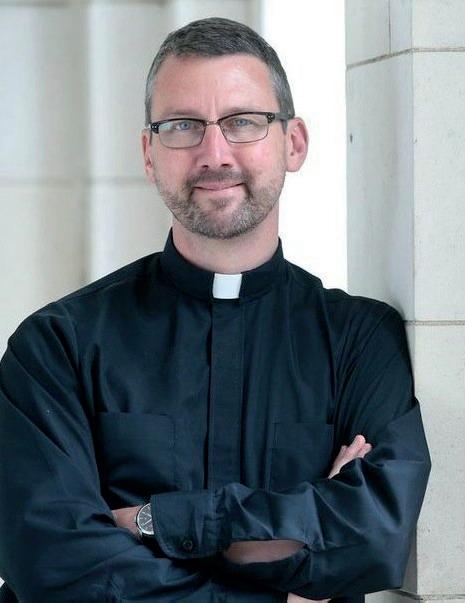
Coming to a university coffee shop near you – the chaplains are getting out and about across the campus with a “pop-up chaplaincy” to be a more visible presence so that students can find out what the University chaplains have to offer.
S O WHAT DOES THE C HAPLAINCY OFFER?
CU Chaplaincy offers places of friendship, hospitality, prayer and support. The chaplains come from Anglican, Catholic, Eastern Catholic, Methodist and Muslim backgrounds. All the chaplains are committed to working together to develop mutual respect, inclusion and diversity across the University. Currently based at 61 & 62 Park Place, they offer opportunities for students to relax and to explore faith and spirituality. The chaplains support individuals from all parts of the world regardless of their nationality or religion and are committed to encouraging discussion between stu-
dents of different faiths, traditions and backgrounds.
P OPPING - UP AT THE IV L OUNGE
I will be about on a Friday morning, between 10am and 12noon – I’ll be easy to spot - maybe it will be the pop-up banner saying “University Chaplaincy” that will give me away or the rather obvious “dog-collar” that will do it! I’m here to listen and help so do come and say hello. My background was in the NHS, where I worked as a physiotherapist for several years before ordination so having a presence at Heath Park is important to me and I have personal experience of the pressures of a healthcare course. I am happy to talk about anything and I offer (like all the chaplains) a non-judgmental and inclusive welcome. If you want to know more about the Chaplaincy, the individual chaplains and what’s on offer, go to: cardiff.ac.uk/chaplaincy or if you are on Facebook ‘Cardiff University Chaplaincy’ or Twitter @cardiffchaplain or just ask.
“
I am happy to talk about anything and I offer (like all the chaplains) a nonjudgemental and inclusive welcome
”
tweet us @HeathparkCSU email us VPHeathpark@cardiff.ac.uk
Claire Blakeway
Pictured: Te Rev. David Sheen.
Pictured: Claire Blakeway at a Heath Park Fair, October 2014
Rev. David Shen
Claire Blakeway
School of Medicine now 3rd in UK
Massive boost for medical school in the Complete University Guide
Last Tuesday the School of Medicine received some fantastic news. They rocketed up the league tables from 16th to 3rd place for Medicine, a huge jump that both the Medical School staff and students were delighted to hear.
Over the past few years the Medical School has completely reconfigured its Medical education, introducing a completely new curriculum, the C21 programme. This is a complex course that aims to create a truly world class medical programme which will attract, train and retrain the very best doctors for Wales. Its purpose is to embed the values of teaching excellence, service, science, scholarship and patient safety into a world leading medical programme. This will ensure the very best doctors for Wales by providing high quality teaching and an inspiring learning experience based around increased clinical exposure. It is led by the Institute of Medical Education, and is in partnership with colleagues from across the University, student and
patient representatives, the NHS and Welsh Assembly Government. C21 consists of coordinated projects, which when delivered, will benefit students and doctors in training, clinical practice, and the wider community.
The Medical School feel that their success is down to a number of reasons including; their enhanced partnership with their students through the student medical society, events such as Surgam and their engagement with Student Staff panels. The school also feel that in comparison to last year, it has improved as a result of increased student entry standards and this is a direct result of the C21 project that is attracting students to the course. The third is improved student satisfaction from the NSS and again the school have actively engaged with this and trying really hard to improve the student experience and the students are seeing the benefits of this.
The Dean of Medical education, Nick Topley and Steve Riley, Director of the C21 programme, said “In
Medics football compete in NAMS
Football team set to aim high in 2016
NAMS is the National Association of Medical Schools football tournament that Cardiff Medics Football Club annually attends, this year being on the 21st March. We took approximately 40 medical and healthcare students up to Manchester to field two squads to compete against 46 other Medical School teams from around the UK.
In addition to our current players we had 4 ex-players and alumni members join us to provide a great occasion to bring all generations of the club together and network with other Medical Schools.
On the pitch both teams put in 100 per cent effort and the quality overall for all medical schools was very high. Leeds Medical School first team in particular were very organised proving their worth by beating the second team by four
goals. The first team also took time getting a foothold in the tournament as they found it difficult to play their usual possession style of football due to the windy conditions and the quality of the pitch. The highlight of the matches has to go to Owen Jones for a rocket of a shot from a tight angle from 35 yards out that he buried into the bottom corner. The first years also featured heavily in both teams showing promise for future tournaments and the football club. We were unfortunately unable to make the later stages of the tournament yet we felt as though both our teams played some very good football. The winners, Liverpool, beat Leeds in the final of the tournament. The club is looking forward to travelling to Liverpool next year for NAMS 2016 to try and bring the trophy back to Cardiff.
31 PARK LIFE
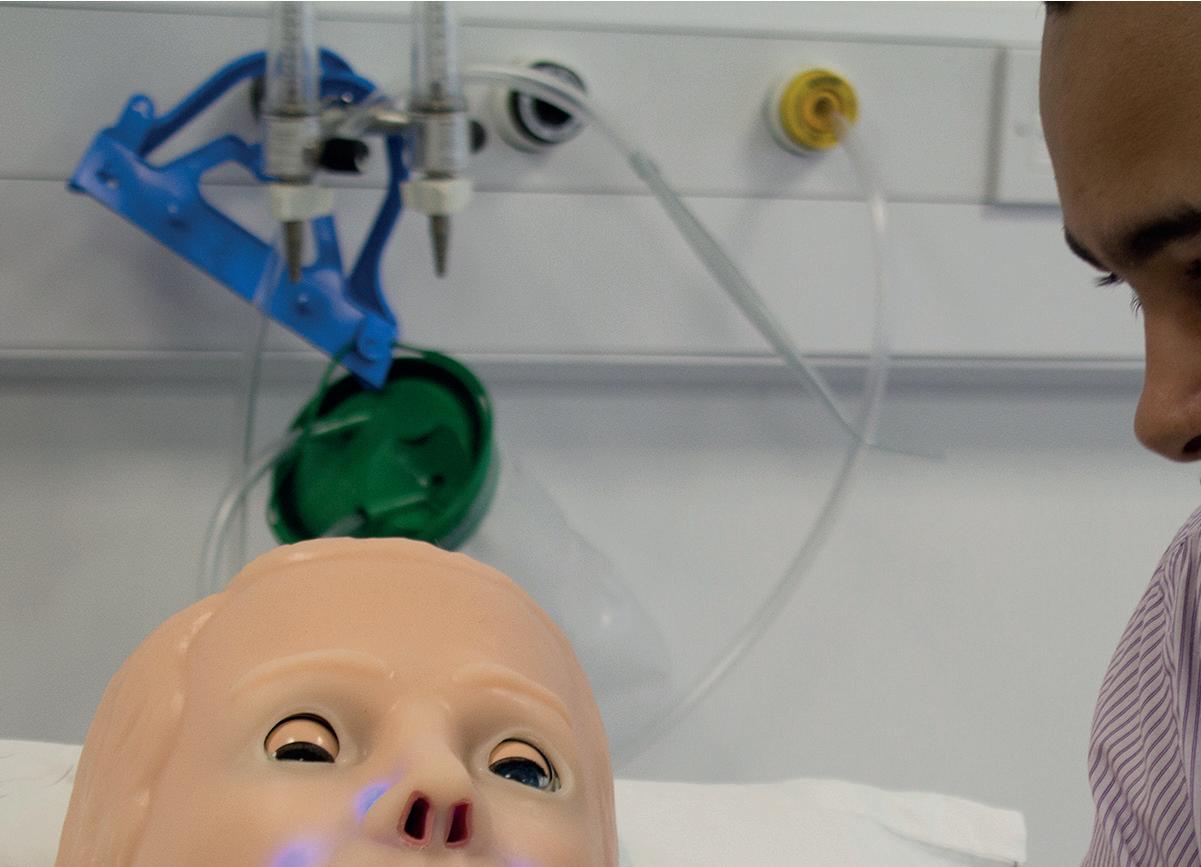

MEDIC we are really excited about the results from the Complete University Guide as it seems that all the hard work in planning and utilisation of resources by our teachers and researchers is translating into a real improved performance and a better experience for our undergraduate and postgraduate students”.

Other courses in the College of Biomedical and Life Sciences have also performed exceptionally well in this survey with Dentistry flying up the league table from 14th to 2nd, Physiotherapy maintaining first place and Nursing rising two places from 12 to 10th.
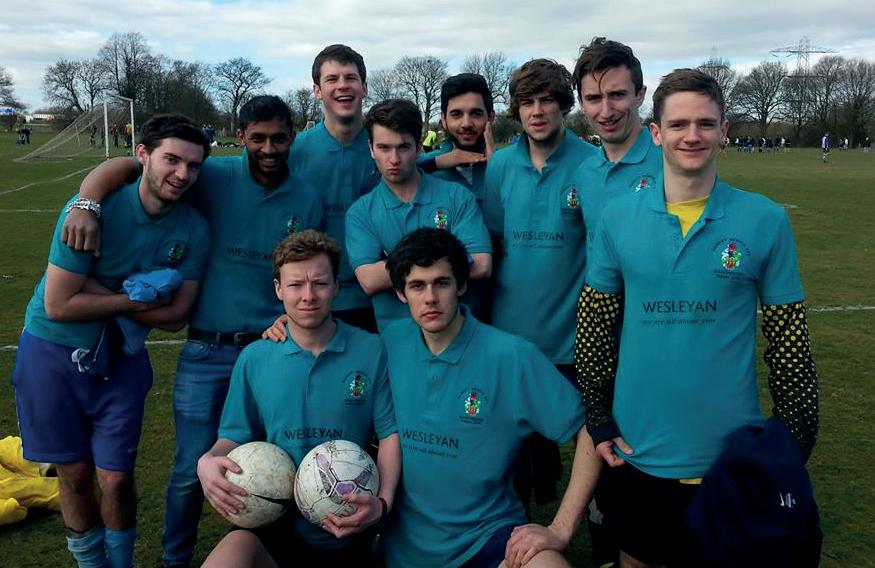
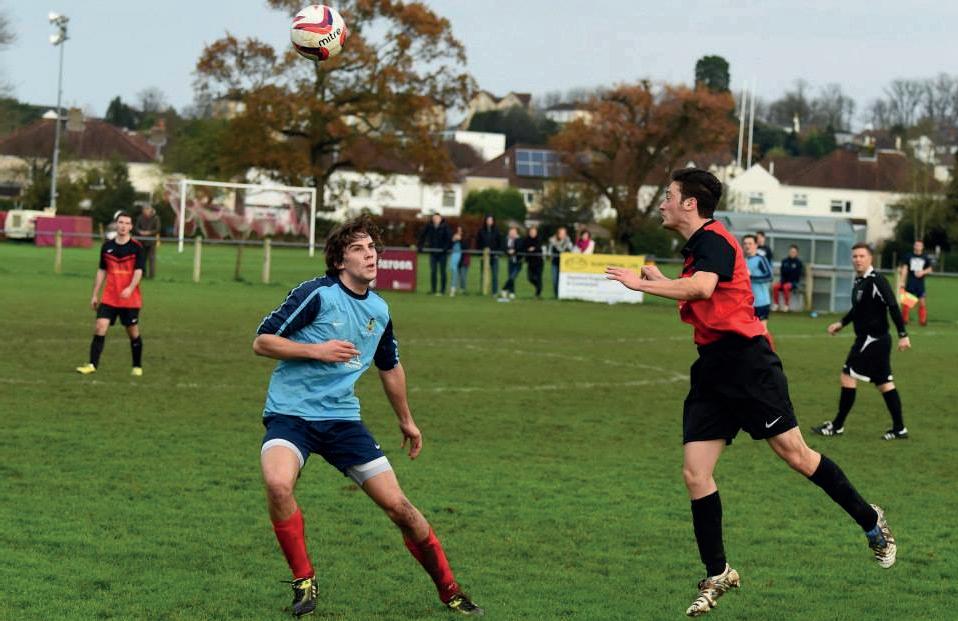
A huge jump that both the Medical School staff and students were delighted to hear
Pictured: Amedical student practicing on a dummy
(Source: Flickr)
Jem Melcher
Pictured: Medics football team put 100 per cent effort into the tournament
“ ”
Cardiff Nightline CardiffNightline @CardiffNL CardiffStudents.com/nightline
Celebrate the end of exams in style!
t hursday 11th June – s unday 14th June
What’s included:
* 2 nights award-Winning hotel accommodation
* executive Coach t ravel
Couple Room upgrade +£40
* overnight ferry Crossing
* Continental breakfast
* su amsterdam barcrawl
* Give it a Go itinerary
t his trip is organised directly by the students’ union, meaning low prices, great value and organisation you can trust!
#amsterdamCsu | sign up online: Cardiffstudents.com/amsterdam
SPORT
tweet us @gairrhyddsport email us sport@gairrhydd.com or visit us online at gairrhydd.com/sport
Te judgement on Judgement Day
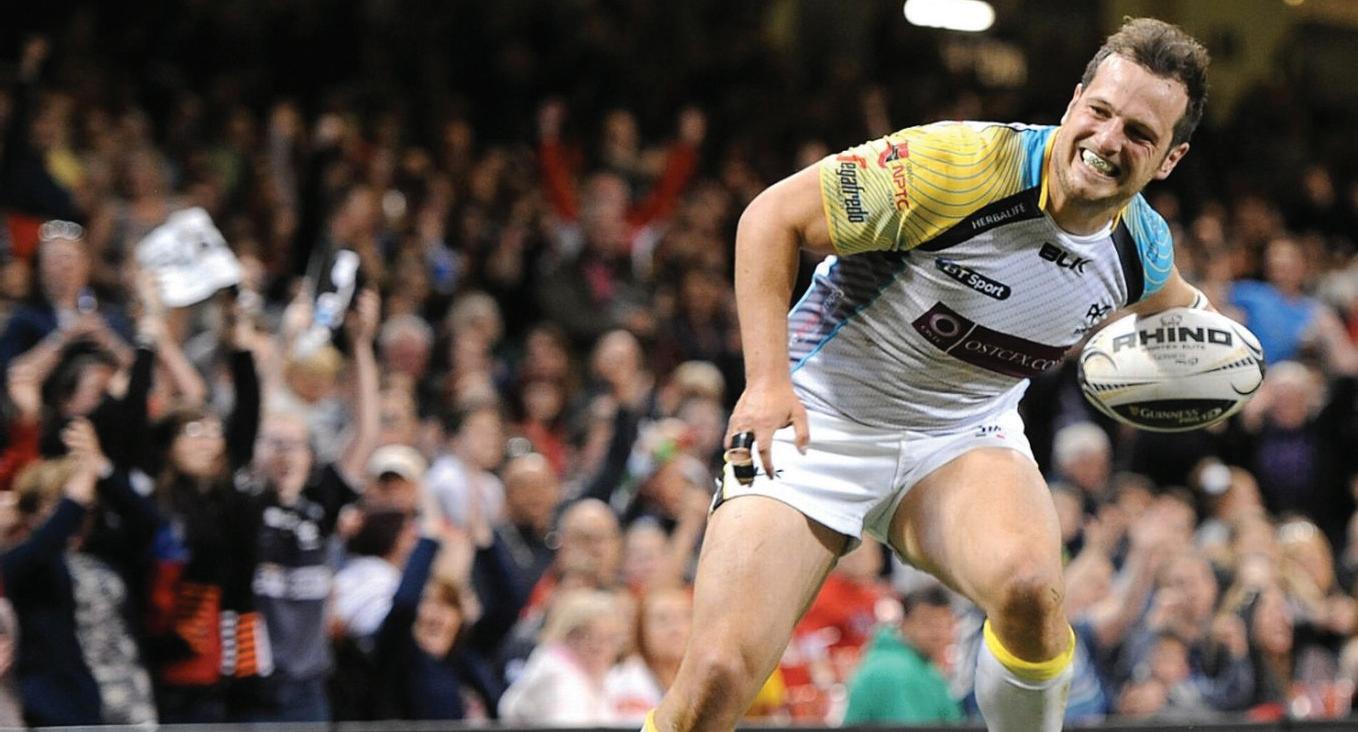
Wales and rugby go together like Dolce and Gabbana, Ant and Dec and even strawberries and cream. It’s a beautiful combination that goes hand-in-hand, a relationship that has been going strong since Victorian times.
Rugby in Wales is regarded as the national sport and the Welsh are simply rugby mad. Cardiff as a city is basically rugby central. Te people and the land live and breathe the oftenbrutal sport. Te old quote: “rugby is a hooligan’s game played by gentlemen” flies around so frequently, but it’s the bravery, sacrifice and resilience that makes it the beautiful game adored by so many.
“
It’s the bravery, sacrifice and reslilience that makes it the beautiful game adored by so many
”
As a national team, Wales are amongst the world’s elite. For a nation with a population of three million, it is evident to see why some are so passionate. Wales have a number of players who opt to play their rugby abroad, including former Cardiff University student Jamie Roberts who plays his club rugby in France for Racing Metro.
For the majority of the current Welsh international contingent, home comforts suit and many play their club rugby for one of the top four Welsh clubs: Cardiff Blues, Llanelli Scarlets, Ospreys and Newport Gwent Dragons. Last weekend, the four locked horns for the Pro12 Judgement Day at the Millennium Stadium, where the Blues entertained the Ospreys, which was then followed immediately by Scarlets
Cardiff City manager Russell Slade and fans alike will have had a collective sigh of relief as an erratic season came to a close away at Nottingham Forest’s City Ground.

Whilst Slade already has a transfer window at the club under his belt, this summer will provide valuable time to shape his squad to the way he likes.
I predict an exodus of sorts this summer, as Slade will be looking to trim a lot of the fat off the sides of a large squad where a lot of players have not made an impact.
facing off against the Dragons.
Ospreys, the highest ranked Welsh team playing in the Pro 12 came from behind to beat the Cardiff Blues 2331 in the opener. Te Blues led 9-7 at half time thanks to the boot of fly half Gareth Anscombe. However, a second half onslaught by the Ospreys, orchestrated by Wales’ starting fly half, Dan Biggar led to them scoring three second half tries. Some have tipped Biggar to be the best fly half in the northern hemisphere playing first class rugby at the moment, which going into the World Cup year, can’t be a bad thing for Wales. Biggar oozed class on the day, with intricate passing, ingenious kicks, shimmies and an accurate boot from the dead ball.
Te win for the Ospreys means they seal Pro 12 play-off qualification following Leinster’s defeat at Ulster.
Te Welsh pairing of Alun Wyn Jones and Biggar again led to the try of the game after excellent work by lock Wyn Jones, whose offload to the fly-half was inch perfect. In the last play of the game, Blues scored a consolation try after Dan Fish ran the length of the field, making it an eight-point deficit. It wasn’t just the Wales rugby stars on show; leading referee Nigel Owens took the whistle for the game. Owens is praised for his on-the-field banter and ability to control tempers, making him an all-round refereeing favourite.
In the second game of the day, the Llanelli Scarlets came out on top against the Newport Gwent Dragons
Many of these players that City fans will not be sad to see leave include those brought in by previous regimes that has been almost nonexistent for the club this season, such as Kevin Theophile-Catherine, who is out on loan at Saint-Etienne, South African centre midfielder Kagisho Dikagcoi or Tom Adeyemi.
The striking core will be an interesting one to keep an eye on. Slade has aired his favourable opinions on both Eoin Doyle and Joe Mason, but he will also have Nicky Maynard coming back from
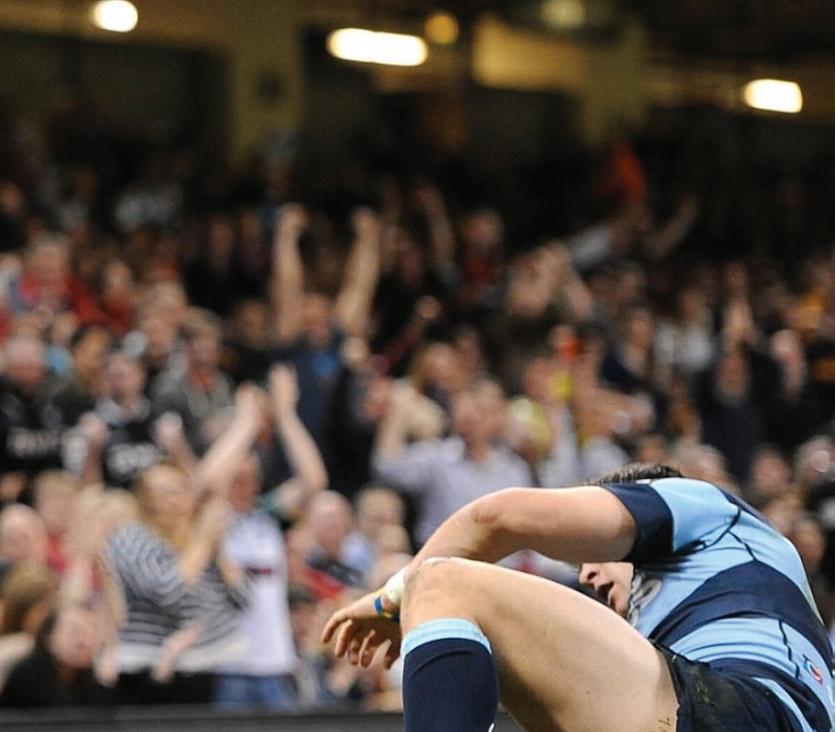
in convincing fashion. Liam Williams was the star of the show with a manof-the-match performance, which included a try.
In a similar manner to the first game, the Dragons took the surprise lead after Tyler Morgan crossed over early on. Te Dragons failed to build on their early fortune and never really got going. Te Scarlets on the other hand ran in an impressive team try on the verge of half time to give them a seven-point lead. Liam Williams picked a gap in the Dragons’ defence and offloaded to a charging Scott Williams who touched down under the posts. Te Dragons failed to score in the second half, as the Scarlets ran in another two tries courtesy of Liam Williams and Harry Robinson. Flyhalf Rhys Priestland had a notable day with the boot, scoring nine points, keeping Biggar on his toes going into the World Cup this year.
Wales head coach Warren Gatland was in attendance, keeping a watchful eye on his players. It was the third Judgement Day hosted at the Millennium Stadium, which also saw a record attendance of 52,762. At £10 a ticket, fans were served a fantastic day of rugby, with excellent value for money. 52,762 is an impressive number for club rugby matches, with the record being 84,068, set by the Saracens versus Harlequins hosted at Wembley in March.
Welsh rugby has come under recent criticism for dwindling crowds. In
an injury, an underwhelming Alex Revell and two loaned out strikers in Kenwyne Jones and Adam Le Fondre waiting in the wings.
It’s likely that these four strikers will leave in the summer, however there is the sense that Revell may end up sticking around, while Le Fondre certainly deserves a second chance after impressing out on loan.
Slade will probably not look abroad as former Cardiff managers have in previous seasons, and players who could invigorate the Bluebirds up front include Preston’s
the last few years poor attendance at regional rugby matches has been made apparent - what’s to blame? Expensive tickets, lack of talent or even poor results? For a nation that adores rugby it is shocking that fans are being left in the cold and are even boycotting matches.
Tere were more spectators at the recent Welsh Varsity match, an attendance of around 15,000, than the average attendance of regional rugby in Wales, which is around 8,000. Te ‘lack of talent on show’ argument is an interesting one, with, as mentioned earlier, a number of players opting to play abroad including the centre pairing of Jamie Roberts and Jonathan Davies.
Should the Welsh RFU aim to keep all its stars playing in Wales? Perhaps it wouldn’t make too much of a difference as it is a minority who elect to. Some blame the Pro12 league for the lack of fans attending games. For some the standard doesn’t quite make the cut of top quality rugby.
Te Irish contingent of Leinster, Ulster and Munster surely makes it a worthwhile competition, but it’s the lowly Italian teams that really disrupts the standard. Tickets across all sports are under scrutiny, and in Wales many criticised the pricing of the autumn internationals, but £10 for a Judgement Day ticket is fantastic value and a model that should be made more frequent across not just rugby, but all sports.
free-scoring Joe Garner or a younger option by loaning Patrick Bamford from Chelsea, who has dominated at Middlesbrough this season. One rumour that always seems to get dug up involves the transfer of probably the best goalkeeper in the Championship, David Marshall, with Derby County recently being linked to the Scottish international. Slade will have his hands full trying to keep Marshall, but a solid replacement could be Bolton’s Adam Bogdan, who has been linked to the Bluebirds before.
“There were more spectators at the recent Welsh Varsity match than the average attentdance of regional rugby
”
Jack Boyce
James Lloyd
Cont’d: Slade steadies the Cardi ff City ship


Continued from back page
successor to Solskjær would end up quite a surprise, as Tan went against the grain in targeting a name that was less flashy to take over the hot seat.
Te appointment of Russell Slade on October 6th wasn’t one that really ignited the passions of City fans. Slade is a manager who wasn’t well known outside the lower tiers of English football, but he had had reputable stints at Yeovil Town and Leyton Orient, where he acquired League One Manager of the Year honours in 2006/07 and 2013/14.
Cardiff fans would have been forgiven for being cautiously optimistic of their chances of still pushing for promotion under their new manager, and Slade’s reputation for building strong, yet unflamboyant, squads could have been exactly what the club needed to get themselves back into the top tier.
At first, Slade’s appointment looked to be one that could have paid off and given City fans an increased faith in Tan’s ability to headhunt and run the club effectively.
To start, Slade conjured up two wins against Ipswich and Nottingham Forest, sides that were tipped to push for play-off or even promotion
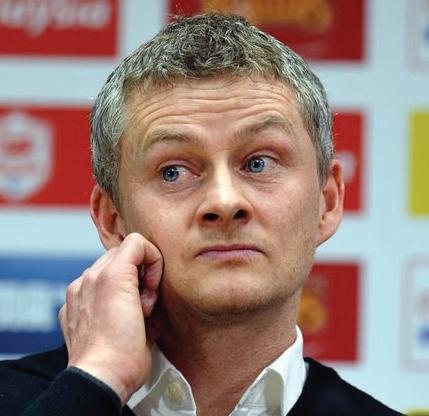
positions. A good run of form followed throughout the month of November with promising results, including an away win at eventually-promoted Watford, and solidified the view that Slade was taking Cardiff back in the right direction.
Despite the momentum heading into December after a string of impressive results, Cardiff hit a pretty significant wall. From December until the start of March, City were only able to win two out of the 15 league games they played, and they quickly plummeted down to the bottom end of the league table, with relegation suddenly being spoken about as a realistic worry. Add the FA Cup loss against Reading mid-January, and this poor form was piling on the pressure upon Slade.
Yet, Slade was given sympathy for the first section of this extremely poor run of form, as he had came into a larger club than what he was used to and inherited a squad which wasn’t his own.
City fans called for others to be patient and allow Slade the time to express his philosophy that was sure to get them back on track. Again, Slade isn’t the most flamboyant of managers,
and neither were the signings he orchestrated.
Players like Scott Malone, Lee Peltier, Alex Revell and Stuart O’Keefe were brought in to very little fanfare, and they didn’t really ignite much excitement from the fans.
Mix this in with the releases of prominent squad members such as Kim Bo-Kyung, Adam Le Fondre and Mats Moller Daehli, Cardiff fans became frustrated at Slade’s apparent contentment with staying as a Championship side for a while longer than scheduled at the start of the season.
Vincent Tan saw the disinterest that had begun to emerge from the Cardiff fans, whether that be from the play on the field or the identity of the club off it, and a record low attendance of only 4,194 in the FA Cup tie against Colchester forced his hand to try to resurge the ambition that was being lost. Te change from a red home kit back to the historical blue strip was rejoiced by the fans and portrayed as a success on behalf of the everyday supporter.
Despite an immediate victory over Fulham on the first home game back



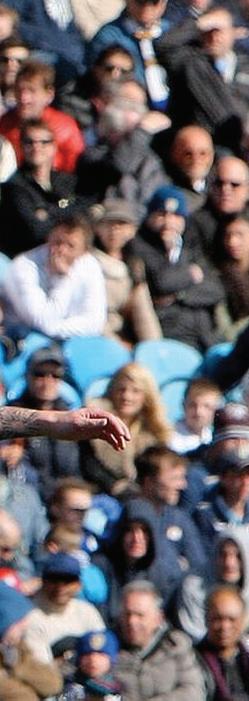
with the blue kit, this turnaround failed to galvanise the club back into the promotion race, and the organisation felt static.
Te months of March and April were indicative of the kind of progress that Cardiff has made. Great wins against the likes of Rotherham and Brentford were juxtaposed with horrid losses at the hands of Bolton and Ipswich.
Slade continued to bang on about the club being “a work in progress”, so much so that it has become a running joke among journalists on how many times he will use the term in postmatch conferences.
Tis season will surely be a valuable lesson for Slade, Tan and the club as a whole. An exodus of fringe players is sure to come in the summer, and City fans will be hoping that Slade can counter this with an influx of talent that finds the right mixture between budgetary requirements and football needs.
An off-season for Slade to tweak his tactics and properly drum his philosophy into the team may be just what Cardiff needs to push onto the upper reaches of the Championship and possibly the Premier League.

35 SPORT
Pictured: Above: Cardiff City fans were ecstatic at the owner Vincent Tan’s decision to return to blue kits.
Below: (Left to right) Ole Gunnar Solskjaer, Russell Slade and Vincent Tan
tweet us @gairrhyddsport
email us sport@gairrhydd.com or visit us online at gairrhydd.com/sport

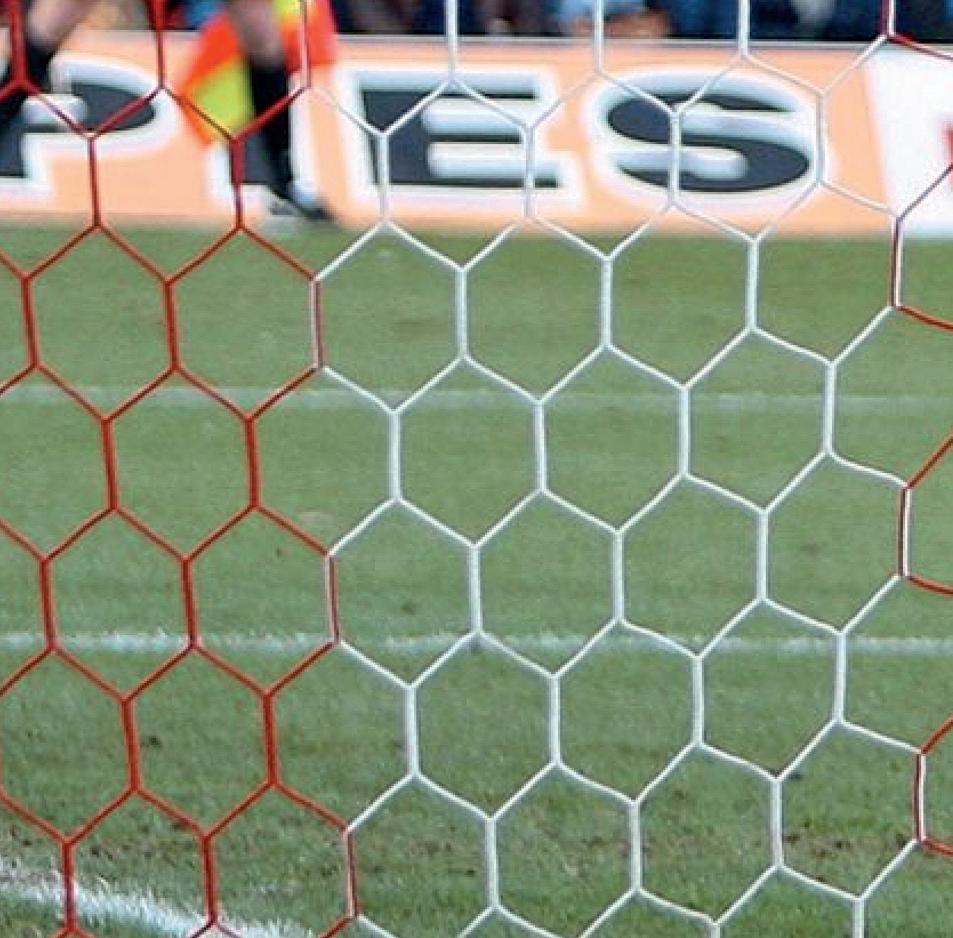








Cardiff City: 2014/15 in review
We assess what has been a truly topsy-turvy season for the Bluebirds, which has included changes in management and colours
Jack Boyce
The 2014/15 season has been one to remember for the Bluebirds. Over the space of 10 months, the situation at the Cardiff City Stadium has been completely subverted.
At the start of the campaign, Cardiff were almost unanimously seen as the strongest side in the Championship, and despite coming off the back of relegation from the Premier League, there was an aura of optimism
surrounding the club.
Under the guidance of big-name manager and former Manchester United forward Ole Gunnar Solskjær, who had acquired a winning reputation managing Norwegian side Molde, City had a squad and transfer budget that was enviable to the other clubs at their level.
Te beginning of the season couldn’t have started any better for Solskjær’s men, and nothing could
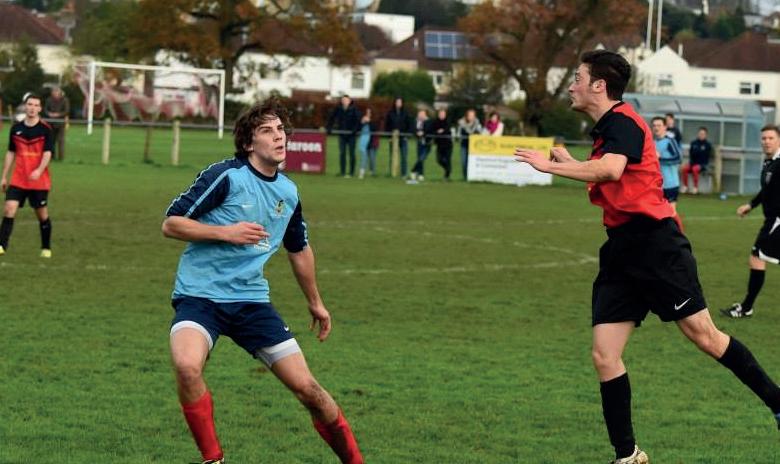



have put a bigger grin on the face of Cardiff fans than an impressive 3-3 draw in their final pre-season game against German giants Wolfsburg.
Tis solid form followed into the start of the season, and the Bluebirds were looking like the team that they were expected to be before the season began.
But September brought about Solskjær’s downfall; a 4-2 defeat at the hands of Norwich and another loss



against Middlesbrough proved to be the deciding factors for owner Vincent Tan to put Solskjær on the chopping block.
In sacking Solskjaer, the club’s Malaysian owner continued to live up to his reputation as a triggerhappy foreign investor in the vein of a Roman Abramovich, who commands almost unrealistic demands from his managers.
So, the person to become the

Continued on page 35
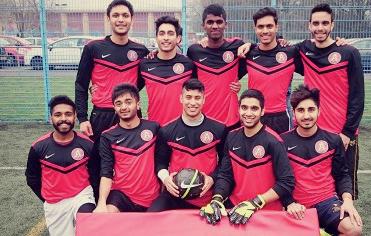




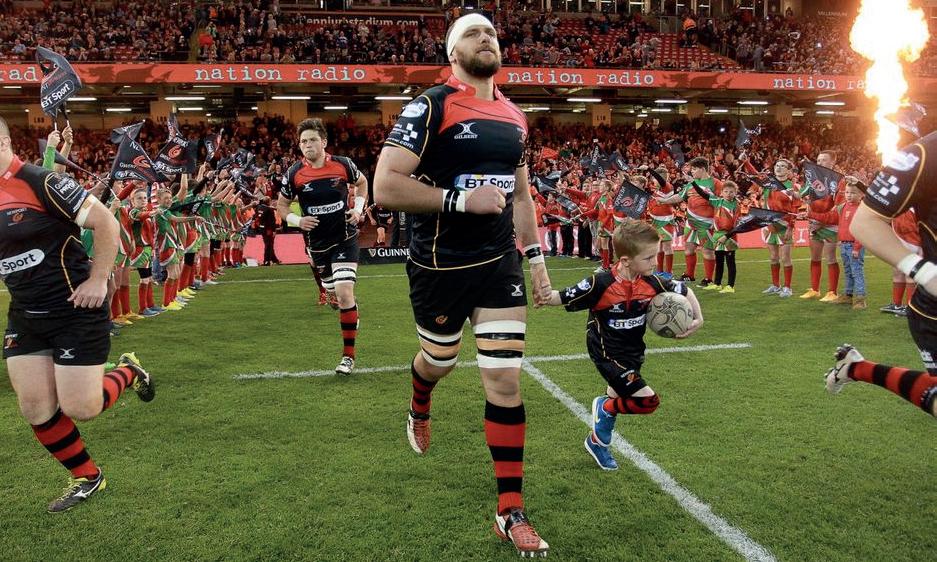






SPORT
Medics football aiming high P31>>
P34>>
Judgement day: reports & reflections
City column: Bamford to Bluebirds? P34>>

































 Pictured: A student getting advice on her CV from a guidance team member
Pictured: A Target Jobs fair stand
Pictured: A student getting advice on her CV from a guidance team member
Pictured: A Target Jobs fair stand





























































































































